
Volume 86 Issue 17 Monday 7th ✦ August 2023
6
14. Has COVID Killed Our Last Two Brain Cells?—Kiran Patel
18. Dear Socrates—Jia Sharma
22. The Publication World is Built Upon
15-Year-Old Girls—Phoebe Robertson
24. Using ChatGPT to Tell Me About Academic Burnout—Aimee Norrie
26. She’ll Be Right: Why Students (Don’t)
Prepare for Earthquakes—Keying Huo-Smith
28. Becoming Kaitiaki: a Challenge to Academics and Tauira—Hēmi Daly
Columns
31. Ngāi Tauira
32. Aunty Vic
Creative
✦
Puzzles
Space
Find Us
Facebook: fb.com/salientmagazine

Instagram: @salientgram
www.salient.org.nz
Salient Podcasts
Instagram: @salient_podcasts
12. Film Students Review The New Zealand International Film Festival Editorial ✦ Etita The News ✦ Kawe Pūrongo CONTENTS 1 2 05. Tertiary Education is Not Dying Quietly 06. Cuts to Theatre: Undervaluing an Industry 07. International Fans & US Secretary of State Descend on Wellington for FIFA World Cup 07. VUWLSS $120 Ball Tickets “Out of Touch” and “Hypocritical” 08. Wellington's Transport Future Uncertain as Election Approaches 08. Hot Takes 09. OPINION: This is How We Break Free from Student Poverty 10. Headline Junkie Arts & Culture ✦ Ahurea 4 Salient is published by, but remains editorially independent from, the Victoria University of Wellington Students’ Association (VUWSA). Salient is funded in part by VUWSA through the Student Services Levy. Salient is a member of the Aotearoa Student Press Association (ASPA). The views expressed in Salient do not necessarily reflect those of the Editors, VUWSA, or the University. Complaints Complaints regarding the material published in Salient should first be brought to the Editors in writing (editor@salient.org.nz). If not satisfied with the response, complaints should be directed to the Media Council (info@mediacouncil.org.nz). Letters Got opinions about what we publish? Send it to letters@salient.org.nz and we'll publish it.
Us
About
Twitter: @salientmagazine
Features ✦ Ahuatanga 5
33. Manawa Ora Tīwae
✦ Panga
7
Horoscopes ✦
8
✦ Auhua 3 00 ✦ C0NTENTS ✦ RĀRANGI KŌRERO
2 ✦ Academic
9
Letters ✦ Pū
Catch us on:

The Unedited Session
Salient Podcasts


Editorial
Serious Chat: Job Cuts are a Student Issue
Fun fact: most students don’t come to university just for the fancy piece of paper. We come here to learn, grow, engage in conversation, meet people, form new ideas, begin our careers, and do what we are passionate about.
To us, university isn’t about earning money. Considering the debt we put ourselves in to just to study, it’d be pretty delusional if it was. The same can’t be said for the Vice-Chancellor and Senior Leadership Team. For them, this university isn’t about elevating the new generations, it’s about capital. For them, this isn’t about celebrating education and knowledge, it’s a business.
There’s no denying the university is in a dire financial state. I mean, there’s a gaping $33 million hole to fill. The decisions of past Vice-Chancellors and senior staff have left the university in a fraught position. Who bears the brunt of their bad decisions? Students, and the staff who have worked tirelessly throughout the pandemic to keep the university alive.
The solution to achieving "financial sustainability", as the Vice-Chancellor puts it, is cutting jobs from departments that aren’t earning their keep. 275 jobs from departments such as Secondary Teaching and Education, Geography, Tourism, Music, Design, and so many languages. This is just a slice of the full list, but while these jobs might fill the financial hole, the impact of losing staff throughout this university can’t be measured in dollars. We lose their experience, knowledge, passion, research, connection, mentorship, and friendship.
It’s the ‘Academic’ issue, so if there was ever a time to talk about the job cuts, it’s now. The day before this issue went to print, the revised document for job cuts dropped, and with this came the news that 74 staff have taken voluntary redundancy. As students of this university, we can’t ignore the changes happening around us because they impact the future of tertiary education. These cuts take away opportunities for future students, and that’s a cause worth fighting for.
While academic and professional staff absorb the news of voluntary redundancies throughout departments, we thought it’d be worth a look at the salaries of those in senior leadership who make the decisions determining this education robbery. We thought you might like to know that the Vice-Chancellor of this university, Nic Smith, makes more than our Prime Minister. We couldn’t get a confirmed number out of the university, but we do know that it’s between $530,820$648,780—a hell of a lot more than Chippy’s $471,000.
The vast majority of staff at this university make less than $100,000 a year. Some of us make a fuck tonne less than that for working countless hours of overtime that will never be accounted for. Whilst cutting down VC Niccy’s pay wouldn’t get us back up to $33m, it’s obvious who will be shouldering the impact of these changes. If you’re still confused, I’ll let you in on a secret babes: it’s not him.
This issue is all about what it means to study at university in this day and age. Kiran asks if we’ve still got any brain cells left after Covid-19, and Phoebe argues that the horny fan fiction you read until 3 a.m. when you were 13 is a legitimate art form. Jia investigates the infamous Socratic method and asks whether it’s crucial for Law education or if it’s just a ploy to embarrass students. Aimee tests out a uni students’ new best friend, ChatGPT, to see whether it can help her write an article on academic burnout. Hēmi challenges learners and teachers alike to rethink the messages they send in the way they teach whakaaro Māori.
In the News section, our reporters attend a funeral for tertiary education, and Ethan R. goes to support the FIFA Women’s World Cup. Maia takes a focused look at the impact of cuts on Theatre. Zoë is shocked at how much Law Ball tickets cost this year, and Ethan M. unpacks the National Party’s policy for Let’s Get Wellington Moving. Finally, VUWSA President Jess Ye is here to yarn about why we can’t continue internalising student poverty.
All we can say is: let’s keep fighting for education, and thank fuck we’ve already graduated (sorry lol). RIP future academics.

Also, to our homie VC Nic: glad to know you aren’t waiting for the “dust to settle” any longer.
Arohanui, Fran and Maia xx
3 Academic ✦
01 ✦ EDITORIAL ✦ ETITA
Salient is fuelled by:
Letters to the Editors
Issue 19—‘Influence and Media’
This issue adopts some self-reflection from Salient as a media outlet, and explores the influence media has, the ways that has been used for good and bad, and the many changes media is going through today. Think anywhere from print to online publication, social media’s influence for quick headlines and click-baiting, and taking a deep dive into misinformation and disinformation. With the freedom protests still under a year ago, and the anti-vaccination movement persisting, we feel this is a relevant and pressing topic for students.
GET YOUR PITCHES IN BY 10 AUGUST
Issue 21—‘Arts’
While the ‘Music’ issue is a regular feature of the Salient calendar, other forms of artistry don’t receive as much attention. Building on the ‘Art’ issue last year, we’d like the 2023 ‘Art’ issue to explore art and creativity in theatre, performance, literature, music, crafts, photography, and the many forms of fine arts and design. We also want to ask what it means to be an artist or creative today. We’d like to highlight the work of Wellington artists and encourage creativity in all our lives.
GET YOUR PITCHES IN BY 24 AUGUST
Issue 24— ‘Nostalgia’
REMEMBER DOLLY DOCTOR?
Meet the Salient Surgeon (snip/snap)
Here to dissect the dirt you dish out
For our ‘Influence and Media’ issue we want to hear your juiciest, sauciest, most succulent confessions, stories, gossip, and hot tea from throughout your uni career. This is the perfect time to rat out your flatmates for leaving their socks on the ground, your friend for spending too much time with their PDA-heavy boyfriend, and that one tutor who is just really mean for no reason. Whatever it is babes, get it off your chest, and don’t forget to make it funny!

Everyone loves a bit of nostalgia, especially back to the early 2000s times of childhood. We’d like to have fun with this issue, remembering the eras of popular culture we grew up in. As well, we’d like to engage with old editions of Salient to see what students were covering way back when, and see how our magazine has grown in terms of inclusivity, quality, and content. GET

4 ✦ Academic 02 ✦ LETTERS ✦ PŪ
4 ✦
YOUR PITCHES IN BY 14 SEPTEMBER
Tell us ya tea!
Tertiary Education is Not Dying Quietly
Words by Niamh Vaughan (she/her), reporting by Salient News Team
Photos by Ethan Rogacion (he/him)
On Tuesday afternoon last week, the Hub was occupied by a funeral ceremony in memory of tertiary education.
The forthcoming job and course cuts at Te Herenga Waka inspired grief-struck students to create Students Against Cuts (SAC) and organise a funeral to bid farewell to the university.

The ceremony was opened by a sombre brass band. Black veils and funeral attire could be seen throughout the crowd. Meredith Ross-James, SAC’s organiser, welcomed those in attendance with her tearful eulogy. “What is dying is not just an institution,” she proclaimed, “but the dreams of many of us students.”
“These cuts don't have to go through,” Ross-James told Salient. “They will lead to the death of tertiary institutions in Aotearoa. It's gonna be a snowball effect.”
“The government has only given us a half solution,” VUWSA President Jess Ye stated in a speech to the crowd. “Only $12 million [of the $128 million divided between tertiary educators] is going to VUW. That’s a bandaid on an amputation.”
The mourning protesters lead the funeral procession from the Hub, down The Terrace, and through to Parliament grounds, with pallbearers carrying two prop coffins as the group chanted and wailed to the sound of the dreary brass band. “I say union, you say power!” called the chant leader.
Theatre and Māori Studies student Māhanga Mitchell spoke to Salient about the importance of variety and creativity, and that he joined the procession to “support [SAC] and because I don’t want my degree to get cut. I want other people in the future to be able to study what we study here at [VUW]. [...] People come to Wellington for the arts! [Students come] for all the [courses] that are getting cut!”
From Parliament grounds, politicians joined the fray. Chlöe Swarbrick, Green Party Tertiary Education spokesperson, feels that tertiary education is a critical component of a functional society. “I have consistently been frustrated that those who sit on the front benches of government, holding the literal keys to our treasury, are unwilling to live up to the values that they once campaigned on.”
Labour MP and Wellington Central candidate Ibrahim Omer said, “At the end of the day, it’s all about producing the next generation of leaders, and if we don’t have good education then we’re not going to do that.”
“Despite the funeral, despite all of this, now is not the time to give up and get defeated,” Jess urged the student crowd with her speech. “We need to make education a critical election issue this year so this funeral today does not become a reality.”
5 Academic ✦ News the 7 August 2023 Issue Seventeen 03 ✦ NEWS ✦ KAWE PŪRONGO KAWE PURONGO
✦ ✦ ✦
Cuts to Theatre: Undervaluing an Industry
Words by Maia Ingoe (she/her)
The teachers and students of the VUW Theatre programme are staring down the barrel of severe job cuts that have been described by staff and students as “blindsiding” and “tearing apart a community”.
The VUW Theatre programme is one of the only ones in the country where students are trained in a practical, multi-disciplinary way that enables students to combine Theatre with other programmes in the BA. The original job cuts proposed by the university would split the Theatre school in half—cutting four out of eight roles—and merging it with the English programme, removing the practical and performance aspects of the course.
“It feels like our whole discipline has been completely undervalued and misunderstood,” Kerryn Palmer, a Theatre lecturer, told Salient. “[The people making these decisions have] never been down to the theatre program, they have no idea the impact we have on students, and the lasting impact this [will have] on industry,” she said.
The lack of consultation from the university has been frustrating, Palmer said. The data used to measure the financial sustainability of Theatre specifically has misrepresented the value of practical teaching, use of theatre space, and the students who take courses in Theatre without majoring in it.
While the vision for Theatre under the proposed English-Theatre merge is murky, those in the department can assume it will change to a lecture-based programme focused on critical analysis and will not have production courses. Lecture-based learning doesn’t cater to everyone, Palmer says. Put simply, “You can’t teach collaboration and creativity by reading it in a book.”
VUW Theatre is a “pipeline” to the Wellington theatre industry, Palmer said. “We are not just training up actors. We are training up creative leaders. We are training technicians, we are training designers, we are training [teachers].”
This was echoed by theatre administrator, Katie Hill, who runs @SaveVUWTheatre on Instagram. “Our graduates are the ones that work at Circa and Bats and Hannah Playhouse […] because they're trained to not just be actors, they're trained to be anything,” she said.
The response from the Theatre community has been “the light in the dark for the program”, Hill said–with over 100 graduates responding to a call for testimonies to the value of the school, including “industry heavyweights” such as Jemaine Clement, who highlighted the importance of VUW Theatre on his career.
“There’s a general anxiety and worry from the arts community, that [the cuts will] have an effect that will either take years to build back, or it never will,” she said.
Annie Black is a current Honours student researching the impact of teaching Theatre alongside other disciplines, such as History. She had planned to study her Master’s in teaching at VUW, but with the programme potentially becoming disestablished, she now doesn’t know if she’ll be able to stay in Wellington.
She describes the cuts to the Theatre programme as a “gross miscommunication issue”, with the lack of consultation with Theatre staff let alone students.
What comes through from all those involved in VUW Theatre is the immense value of community, especially for students moving away from home for the first time.
“If it hadn't been for Theatre, I wouldn't have met half of my closest friends,” Annie said. “By [stripping arts back to the basics, you’re] taking away that sense of community, that sense of collaboration, that sense of people being able to work together.”
“A lot of us will never earn what the Chancellor and the Vice-Chancellor (VC) earn. But personally, I will go on to probably teach their children and their grandchildren and their great-grandchildren some of their basic life skills,” Annie said.
With a lack of consultation from the VC and the Senior Leadership Team, many in the Theatre school feel as though there’s a lack of empathy and respect. “We have gone through and figured out how we could save that money in a way that preserves the integrity of the programme,” Kerryn said, “We just want to have a conversation about it.”
“I would love [the Vice-Chancellor] to make a time and come down to hear us. Not sit in a boardroom, but come to Fairlie Terrace and talk. [Then] we can show you some of what we do.”
6 ✦ Academic 03 ✦ NEWS ✦ KAWE PŪRONGO
✦ ✦ ✦
International Fans and US Secretary of State Descend on Wellington for FIFA World Cup
Words by Ethan Rogacion (he/him)
Wellington’s streets have been unusually busy with football fever this winter. Supporters from across the world have arrived en masse as the world’s best women’s football players look to score the FIFA World Cup title.
The tournament has been high stakes, with current favourites, the United States, drawing their match in Wellington 1-1 against The Netherlands, rekindling tensions from the 2019 Women’s World Cup final. Their scrappy 0-0 draw against Portugal has seen the US narrowly progress into the next round.
Wellington Regional Stadium has been home to other heated matches, including Japan’s 4-0 thrashing of Spain, and last weeks surprise 3-2 win from underdogs South Africa (54th in the women's FIFA world ranking), knocking star team Italy (ranked 16th) out of the world cup.
It’s sad news for local fans, though. The Football Ferns’ loss to the Philippines and 0-0 draw against Norway eliminated them from the competition.
Tourists from far and wide are ecstatic about the competition.
One American fan told Salient that she came to Aotearoa with a group of friends to support the US side. They said that “it’s just fun to be in this atmosphere” of so many turning up to support women's sport.
Attractions across the city are enjoying a higher visitation, with nearby sites like Wellington Museum, Te Papa, and the Cable Car having a higher than normal amount of people visiting for this time of the year.
Foreign dignitaries have also been visiting Wellington to support their home teams. US Secretary of State Anthony Blinken was among them. His arrival was marked by a heavy police presence on Wellington streets. The motorcade drove through central Wellington, with one KJ resident commenting it was odd that “such a big deal was made out of it, they’re not the King and Queen.”
The quarter final game between [???] and [???] will be played at the stadium this Friday, 11 August. We went to print last Thursday, so have no clue who’s playing in the QF, but slay football!!
VUWLSS $120 Ball Tickets “Out of Touch” and “Hypocritical”
Words by Zoë Mills (they/she)
Law students are doing what they do best: arguing. VUWLSS have announced the prices to the annual Law Ball event, and the steep ticket prices are causing havoc in the Law faculty.
A series of anonymous complaints posted by VuW: Meaningful Confessions have called out the society for steep ball ticket prices.
“How are these ticket prices justified?” wrote a disgruntled student. “So tone deaf given the cost of living crisis and that not everybody in law school is privileged enough to be able to spend that kind of money on one ticket.”
The event is a staple in an annual VUWLSS social calendar, and is set to take place later in the month at Te Wharewaka o Pōneke. Tickets range from $88-$120, an increase from the previous year’s prices.
Madison*, a fifth-year law student, said that VUWLSS was “so fucking hypocritical” for raising prices whilst seeking to promote inclusion within the Law school. She says the society has instead made the biggest event of the year “super exclusive and inaccessible”.

Madison explained to Salient that she felt that the pricing was reinforcing negative stereotypes about Law students, and that ticket prices should have been shared earlier so students had time to set money aside. “There’s just a sheer lack of understanding that a lot of money and students don't just have that at their disposal,” Madison said.
VUWLSS President Tom Simmonds told Salient that while it was a “difficult decision” to raise ticket prices, prices reflect added inclusions such as an alcohol-inclusive ticket covering four drinks. Simmonds said that lowering the ticket prices would also affect the quality of other initiatives by the society, and that the cost of the event was already putting VUWLSS into a deficit.
“We understand the effects that the cost of living crisis has had on students and know how difficult it can be, and we don’t want any student to be missing out because of financial reasons,” wrote Simmonds. “We have tried to keep ticket prices as low as possible for all of our events this year to make them as accessible as they can be.” Afterpay and other payment plans are available for the ball tickets.
*names have been changed
7 Academic ✦ 03 ✦ NEWS ✦ KAWE PŪRONGO
Wellington's Transport Future Uncertain as Election Approaches
Words by Ethan Manera (he/him)
The polarising Let’s Get Wellington Moving (LGWM) initiative is on the rocks, with National campaigning to scrap the project and Labour refusing to commit its support after the election.
LGWM is a joint initiative between Wellington City Council, Greater Wellington Regional Council, and central government. It aims to revitalise Wellington through implementation of light rail throughout the city and increased pedestrianisation along the ‘Golden Mile’ of Lambton Quay, Willis and Manners Streets, and Courtenay Place. The project has hit many speed bumps since its inception in 2015, but as progress ramps up the wheels of political motivation are seemingly falling off.
National have long criticised the project, calling it a “consultationfest”, and last week officially derailed their support. They pledged to scrap LGWM and instead build ‘Four Lanes to the Planes’, a four-lane highway through Wellington to the airport.
Wellington Mayor Tory Whanau has expressed disappointment in the proposed policy, saying it will “do nothing to grow the city, make it more liveable or tackle the climate crisis”.




“Ramming through a four-lane highway and tunnel won’t win the votes of Wellingtonians who have shown consistent support for light rail in the city,” Whanau told NZ Herald
While both National and Labour agree that LGWM has taken too long, Labour has until now supported the initiative. Following recent questioning, their support may be wavering, with PM Chris Hipkins stating, “For the last six years it hasn’t delivered the sort of progress on Wellington transport projects that I think Wellingtonians would expect, so what I’ve indicated is I think we need to have a good look on whether that’s the right way forward.”
When pressed, the PM wouldn't commit his support for the program, and alluded to an announcement in the near future for more details on their transport policy.
The Green Party has slammed National’s “visionless obsession” with highways as “completely nonsensical”, claiming it will “make pollution and congestion worse”.
ACT have said they too support scrapping LGWM, but joined the Greens and Labour in criticising National’s policy costs, which many say don’t add up.
HOT TAKES

8 ✦ Academic
Katherine (they/she)
Out of all the degrees under review for cuts: fuck , marry
Grace
(she/her)
Kill Design Technology (so sorry), marry Theatre, and fuck Physical Geography *wink*
Fuck Classical and Jazz Performance, I’d marry Languages, and I think I would kill Design. I just think Classical’s so hot, and Design, I don’t even know what that is, sorry.
Fuck Theatre, obviously. But like, in a good way. Marry Classics, and I guess kill the Museum and Heritage Studies.
Lisa (she/her)
I’ve gotta marry Teaching, fuck Tourism. Midwifery? No, I don't wanna kill anything though!... Okay, I’ll marry all three.
Nathaniel (he/him)
03 ✦ NEWS ✦ KAWE PŪRONGO
OPINION : This is How We Break Free from Student Poverty
Words by Jess Ye (she/her), VUWSA President
The worst part of student hardship is that we've become numb to it. It feels like a jaded laugh at having instant noodles for dinner and missing lectures so you can go earn $22.70 an hour to pay for your rent increase. Student hardship is normal because it is all we have ever known. Besides, one day you’ll have a glorious career and finally be able to pay off your student loan, right?
The most nefarious thing about student hardship is the internal conditioning that things are meant to be this way. We are deeply wired to internalise student hardship and debt as our individual burden to bear, to accept a default of rampant inequality and student debt.
I constantly find myself battling to replace these narratives with the belief that I fundamentally deserve better because all people should be able to live with dignity. Dignity is not something to be earned.
The good news is that as soon as you start pushing back against these bullshit internal narratives about student poverty being a rite of passage, you’ve already unlocked the first step to actual change.
Politics is owned by those who show up—those who can show up for themselves, their mates, and the future of Aotearoa. If we replace our numbness with anger and hope for a world without student hardship, then we can lift collective student consciousness and mobilise to give politicians the mandate to change the blueprint.
Students are a strong demographic. We make up around 400,000 people across the motu. We've swayed elections.
We’ve terrified governments into taking action that was previously not on the table, like the $128 million funding announcement for universities to prevent staff cuts and a higher education review. In previous years, we’ve prevented student loans from being administered by private banks, and we’ve won fee maxima (an annual percentage cap on how much tuition fees can increase) and interest-free student loans.
We can also win a Study Wage for All, which you may know as a universal student allowance. Now is not the time to get defeated. Now is the time to organise steadfastly, talk to one another about student hardship and the kind of world we want, and amp up the pressure. We have the levers in place. The announcement of a higher education review from the government was an acknowledgement that the current bums-onseat, user-pays funding model doesn’t work. Lest we forget that free tuition and relatively universal student allowances existed just over 30 years ago in Aotearoa.
Depending on how we organise and how this election goes, the higher education review can either be a vehicle for tertiary education reform, or it can be a tool to inflict more student debt, drive up business-like behaviour, and announce more staff cuts (which was the outcome of the recent HE Review in the United Kingdom). So, what kind of future do you want?
Attend VUWSA’s next Study Wage for All workshop on Thursday, 10 August at 5:30 p.m. to learn how to advocate for tertiary education reform and get involved.
9 Academic ✦ 03 ✦ NEWS ✦ KAWE PŪRONGO
✦ ✦ ✦
HEADLINE
ALIENS ARE REAL AND NOBODY CARES
US Congress held a UFO hearing two weeks ago, wherein three ex-military officials came forward. They claimed the US government has more knowledge of extraterrestrials than they were letting on and are in possession of ‘non-human biologics’ discovered at a UFO crash site. The wildest thing about this is not that aliens might be real and are being acknowledged by congress, but the fact that nobody is talking about it. Seriously, it didn’t even make it into headline junkie last week. Considering the Storm Area 5, They Can’t Stop All of Us Facebook event of 2019 that took the internet by storm, the radio silence after the congress meeting has been deafening. Perhaps this is due to a lack of evidence brought forward by the three ex-officials, or the ambiguity of the phrase ‘non-human biologics’?
IS THIS CHINESE SUN BEAR REALLY A DUDE IN

A COSTUME?
A recent viral video has forced a Chinese zoo to make a statement that their sunbear is not some guy in a suit, but a real bear. A viral video showing the bear standing on its hind legs raised suspicion with some viewers, as they believed that only a human would stand up in such a way. The wrinkles on the bear's rear-end raised eyebrows as well, with some claiming it bunched in a way similar to fabric. A Hangzhou Zoo spokesperson refuted rumours on Saturday, claiming a human would not be able to withstand the summer heat in such a fur suit.

SUCK YOUR DISPOSABLE VAPES GOODBYE
As of last Wednesday, New Zealand has banned all disposable vapes. All vapes must now have a removable or replaceable battery, meaning the cycle of perpetually buying ‘one last disposable before you quit’ is over. Shop owners now have three months to sell whatever disposable products they have left. The government hopes that the ban will restrict young peoples’ access to cheap nicotine.
Along with the disposables, vape stores within 300 metres of schools and marae are on their way out too. More regulations around vape flavour names are also coming into place, aiming to restrict vaping’s appeal to young people. However, some retailers believe the government hasn’t given the industry time to adjust.
They reckon we can expect to see disposables sold at slashed prices to abide by the law only to be bought out and sold at a premium price on the black market.
BARBIE SLATED TO BE A BILLION DOLLAR MOVIE
Greta Gerwig’s Barbie is expected to make over $1 billion, having reached $93 million after its second weekend. Barbie has also broken the record for the biggest opening of a film directed by a woman. The film boasts the highest grossing second weekend at the NZ box office of all time. Oppenheimer hasn’t done too badly either for a 3-hour historical biopic, earning $46 million in its second weekend.
10 ✦ Academic 03 ✦ NEWS ✦ KAWE PŪRONGO

11 Academic ✦
For the ‘Academic’ issue, we paired up with Whānau Mārama New Zealand International Film Festival (NZIFF), and gathered three VUW film students to review an NZIFF film each. First, they were shown a couple film stills to review the initial vibe and make a guess about what the film was about. Then, after watching, they wrote up their final thoughts.

Brainwashed: Sex-Camera-Power
Directed by Nina Menkes, Shown 3-6 August
Words by Wes Brooke-White (he/him) Second-Year Film Student
Favourite Movie: Ghost World
Film at a Glance

Opening my stills, I’m struck by a massive picture of Rita Hayworth’s face. I recognise the film without needing the helpful caption: that’s her in Orson Welles’ The Lady from Shanghai. It’s identified onscreen ‘as an example of gendered lighting’, which, combined with the woman watching from a cinema seat in the bottom right corner of the still, tells me this is a movie about movies. More specifically, at a guess, it’s an essay film like Los Angeles Plays Itself or Aotearoa’s own Out of the Mist, with questions to ask about how films shape reality by representing women.
Film Review
For better and for worse, I was right. Brainwashed hits the classic stumbling block of being about too much to meaningfully develop any of its ideas. That’s true of many essay films. It’s hard to be systematic in a field which rewards sensational conclusions. The best make up for their academic shortcomings with strong rhetoric or emotional effect. Brainwashed is a scattershot recap of interesting discourse, but the width of its lens makes it feel shallow.
Filmmaker Nina Menkes cycles through dozens of examples suggested to reflect a mass cultural hypnosis: the arrangement of film techniques to code women as passive sexual objects. She breaks down elements of film form in helpful ways.
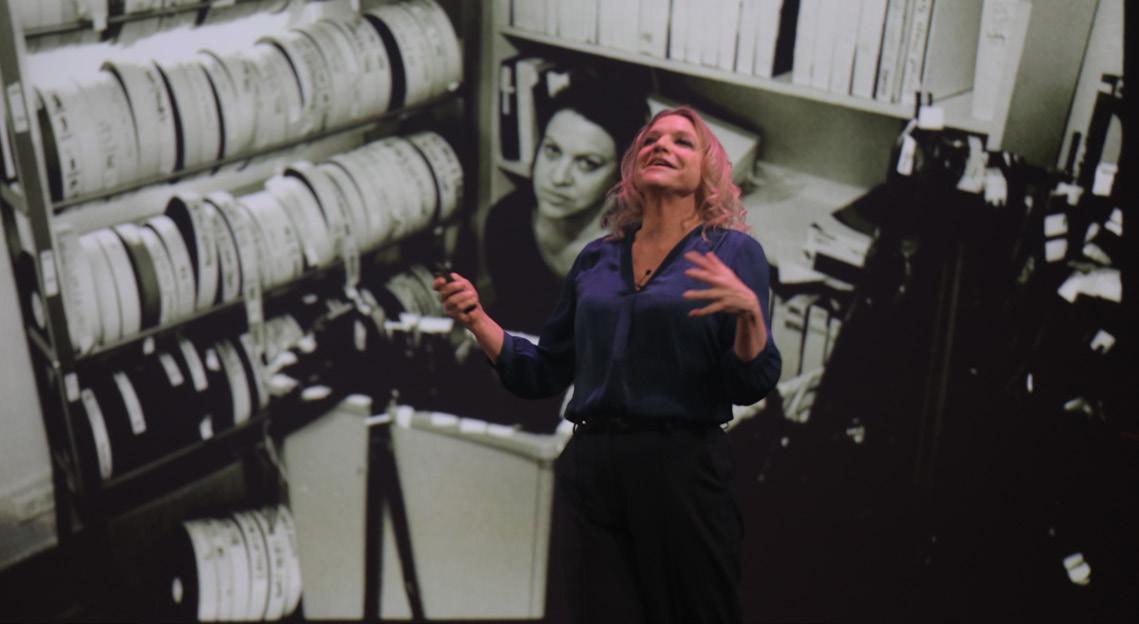

Brainwashed is best as an autopsy, carefully identifying a technique and revealing its invisible significance. The issue is that she immediately jumps to her biggest claims without laying groundwork.
During one of many montages, Menkes plays a clip from Julia Ducournau’s Titane, a film lauded for nuanced, positive sexuality. Menkes erases this context to fit Titane’s images of nudity into her universal formula. Her claim is so broad that it collapses under its own weight, and her examples begin to feel cherry-picked. She highlights one queer film (Watermelon Woman, a far better movie about movies) and cites her own films no less than five times as positive examples. I don’t challenge the validity of some of her points (nor is it my place to), but her approach is self-sabotaging.
Brainwashed is a presentation on how misogyny is baked into film language—an idea made famous by scholar Laura Mulvey in her 1975 essay. Mulvey’s often misread analysis of the male gaze is one of the most famous ideas in film criticism. Menkes interviews Mulvey, an incredibly articulate speaker. Although based on Brainwashed alone, you'd be forgiven for thinking Mulvey’s theories had gone unchallenged over the last 50 years. Feminist film criticism isn’t a monolith, and later theorists have expanded and refuted Mulvey’s points.
Brainwashed excludes scholars like Patrick Shuckmann, Karen Hollinger, and Camille Paglia. Brainwashed wasn’t on the hook to answer every interpretation of Mulvey’s work, but it flattens a living, breathing discourse and a rich body of queer and sex-positive cinema into a prepackaged headline. If you know these theories already, you’ll find no new insight.
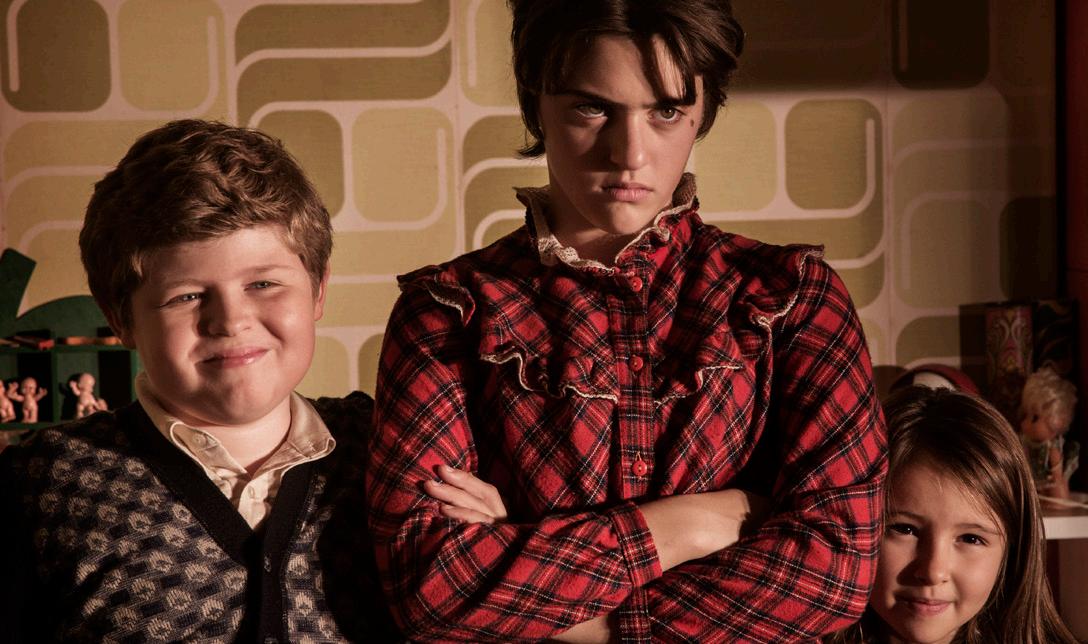
12 ✦ Academic 04 ✦ ARTS & CULTURE ✦ AHUREA
L'Immensità
Directed by Emanuele Crialese, Shown on 3 August

Words by Willem Koller (he/they)
Third-Year Film Student
Favourite Director: John Waters
Film at a Glance
Once I get past staring into Penelope Cruz’s eyes and seeing the still of a queer teenager both slow dancing and staring knowingly into a microscope, I’m hoping for a trans modernisation of High School Musical where t-boy Troy decides between a future in microbiology or dance. The production design and costumes are definitely 70s, which, next to the image of Penelope Cruz holding a candle in what looks like Catholic mass, makes me cross my fingers and hope L'Immensità will emulate the trends of sacreligious explorations of Catholism in 70's films such as The Devils and Don’t Torture a Duckling
Film Review
Despite the fact that, surprisingly, my musical predictions weren’t as far off as I thought they would be, Emanuele Crialese’s L'Immensità is a film that completely took me by surprise.
The film is a dramatic exploration of the impenetrable bond between Andrew, a young, bullheaded trans boy, and his loving yet unorthodox mother, Clara, who live under an abusive patriarch. Perfectly balancing a combination of surreal performance sequences with a raw excavation of a suffocating, domestic space, the film is sunny and dream-like, yet soberingly poignant. Moments of darkness and tension are elegantly framed, heavily saturated and dripping in warmth, tinged with normalcy, and undercut cleverly with sweetness. Under moments of calm and pure joy lingers a tingling feeling of melancholy for Andrew and his mother.
The exploration of Catholicism is artfully done. The Christ allegory explores trans protagonist Andrew’s desire to transcend his physical body and perform supernatural feats of physical metamorphosis. It’s arresting to watch Andrew have so much self-awareness and self-assertion—to know himself and be loved is exceptional in stories about trans children. Andrew is afforded a remarkably conventional romance, rare for any trans character in film, regardless of age. Although there is frequent resistance to his transness, the ecstasy of being seen as he desires to be seen comes through in crucial moments like a punch to the gut.
No one can depict the ephemeral connection to reality and the unique experiences of pleasure and distress created by the desperate aspiration for change like a trans director. Crialese came out publicly as transgender when this film debuted at the 2022 Venice Film Festival, and notes that L'Immensità is strongly autobiographical. The ending reflects this, depicting the sprawling nature of a life in progress. So don’t expect a tidy, satisfying resolution.
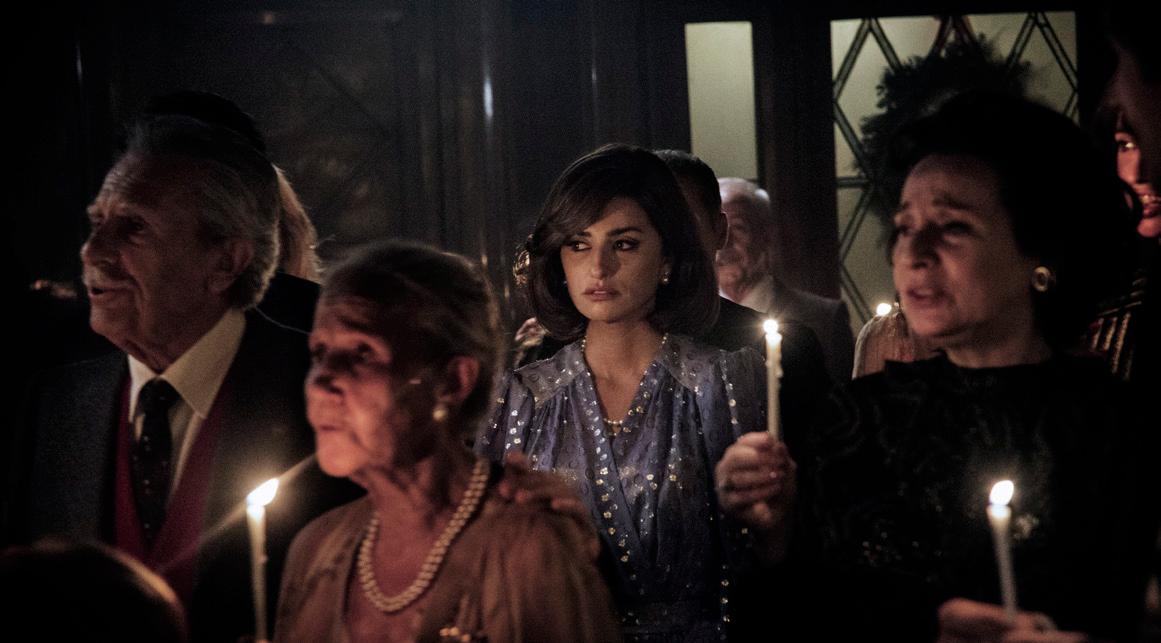
I don’t want this to deter you from watching this film. To me, the bittersweetness of the conclusion only strengthens the depiction of the transience of transness, leaning on the mechanism of escapism as so many of us do as we grow into a body that feels alien to us. As a viewer, I embraced this lack of stability, and I expect my feelings towards this film to fluctuate on every inevitable re-watch. As Crialese himself explained, “we are what we are in perpetual change”.
Carmen
Directed by Benjamin Millepied, Shown 31 July-6 August

Words by Xavier Farrow-Francis (any/all)
Third-Year Film Student

Favourite Genre: Art Horror
Film at a Glance
Right off the bat, I’m uncertain of what to expect from Carmen. The glitz and glamour of some of the stills remind me of Chicago, but then the grittier stills make me think of Denis Villeneuve’s more down-to-earth work in the likes of Sicario, Enemy, or Prisoners. I’m getting the impression the musical scenes may be fantasies, like that in Björk’s award-winning performance in Dancer in the Dark. All of these components are showing me that Carmen is going to take me on a thrilling, twisty-turny ride.
Film Review
Carmen is a bold and ambitious directorial debut from Benjamin Milliepied. Throughout its two-hour runtime, it boasts sequences and set pieces to be marvelled at. Its abstract dance sequences are compelling, and there’s some beautifully poetic dialogue to be found. Combined with large-scale cinematography and a hauntingly operatic score from the ever fantastic Nicolas Britell, Carmen is a film that oozes with grandeur… but unfortunately that’s about all it has to offer.
It kicks off with a highly promising and striking opening scene, full with fantastic dance choreography which is intentionally and tastefully vague, leaving the viewer in a wondrous and hungry state. It sets up its central characters interestingly, assuring a depth that unfortunately never arrives. Past the film’s first act, Carmen just gets progressively less engaging.
The vagueness and lack of depth is precisely Carmen’s downfall. What is meant to be a mystifying and epic tale of finding purpose in oneself through grief and disenfranchisement instead comes off as an underdeveloped and bewildering film that wasn’t quite thought through enough.
There is a definite likelihood that Carmen just wasn’t for me though. I think anyone interested in dance or musical theatre should check it out, as I think it may offer a unique take on the two art forms. My biggest warning would perhaps be to pre-empt yourself for a thin plot and more of a performance than a film.


13 Academic ✦
CATCH NZIFF FILMS ON NOW AT A CINEMA NEAR YOU UNTIL 10 SEPTEMBER . MORE INFO AT www.nziff.co.nz


Has COVID Killed Our Last Two Brain Cells?
 Words by Kiran Patel (he/him)
Words by Kiran Patel (he/him)
For all the shit that we get, Gen Z has had to deal with a lot in the last three years.
‘Once in a lifetime’ weather events turned frequent, a recession on top of a cost of living crisis, global riots over racial injustice, Elon Musk taking over Twitter, the US Supreme Court being fuckwits, Sam Levinson’s perverted fantasies featuring The Weeknd, and a bunch of billionaires being drowned at sea in a submarine (actually, that last one is pretty funny). This generation has had to suffer a lifetime of crises in the span of an election cycle.
Oh, oops, there was also a whole-ass pandemic in between.
Toga parties, late night study seshes, and finally having your first (legal) sip of alcohol were all promises of a fruitful life for the new academic. Times are tough when you’re a fresher, and shedding tears in a university bathroom becomes a Pavlovian response before you realise you don’t actually need to attend every class. Through the growing pains you know, at least, that a shiny new degree, lifelong skills, and the magnificently messy experiences of being a university student are part and parcel with the torture.
In 2020, when the whole shebang took off, some of us were only months removed from the sweet suffocation of high school. The few weeks of being on campus in 2020 likely would have created an unfulfilled appetite for the quintessential university experience. “We got O-Week, which was cool,” says Annie, a first-year Art History student in 2020. “But that was pretty much it.”
As the entire nation crowded around our screens in March of 2020 watching Aunty Cindy warn us that we were about to face “unprecedented economic and social disruption”, I think we all could feel the world of academia would never quite be the same again.
As a Gen Z who graduated in 2019, I watched the chaos from outside. It later intensified for me when I started working at the Tertiary Education Commission. My mind was constantly occupied by the students. I knew that there was no way in hell I could have found the morsels of motivation to go back to study postgraduate. I don’t know how 2020 students did it, dealing with both the pandemic and the university’s inconsistent bullshit. But I also felt mournful for all the freshers’ ‘stupid things you do when you’re 18’ being left unchecked behind empty camera rolls, cancelled festival tickets, and prolonged Zoom calls. For Gil, a first-year English and History student in 2020, the pandemic threw a wrench into his YA fantasies of “finding an academic community and talking to people really seriously about Marxism in the corridors.”
Most of all, I wondered exactly how this would change the academic experience. Through the course of my government job amidst the pandemic, I read hundreds of reports detailing students’ mental health struggles caused by prolonged isolation and uncertainty, skyrocketing food costs, and housing shortages. Having returned to postgraduate study this year, I completely bypassed the worst of the shit show (although the $33 million deficit might have something to say about that), but it got me thinking... what exactly are the repercussions of a global health crisis on young students in the long-term? What does academia look like in a post-pandemic world?

15 Academic ✦ 05 ✦ FEATURES ✦ AHUATANGA
Firstly, the term ‘post-pandemic’ is still a little contentious. ‘Post’ seems to indicate that there’s a nice, neat line between an era of mass illness, economic uncertainty and political divisiveness, and now. It paints the crisis-heavy era we’re living in as paradise. We’re out of the thick of it, but why does it feel like we’re stuck in an ongoing nightmare of instability and crisis?
It’s like the world went through a shitty breakup and we’re still in the rocky healing period pre-glow up.
Poet Octavio Paz believed that living in the modern world meant “continually hurtling forward at such a dizzy pace that it cannot take root, that it merely survives from one day to the next”. Critic Perry Anderson similarly described this as living in an “interminably recurrent present”. So, those jokes that we all tell about feeling like we’re still stuck in March 2020 do actually have some sociological backing. In the Information Age, with one scroll forcing one crisis after the next continually into our tiny coconut brains, it’s pretty much impossible to distance ourselves from it all. New sociological consequences surface daily, and the trauma of a global pandemic has become ingrained into our never-ending present.
Unsurprisingly, the trauma for many students began when the university experience quickly took a turn. The whirlwind of packed-out lectures and half-built tutorial friendships became a simmering of socially distanced dining halls and collective camera-off-mic-off-black-screen breakout rooms. The promised awkwardness of icebreakers and group projects now had another painful layer added to it. Frequent technological mishaps and the repetitive ‘sorry, you go’ cycle seemed like a divine sign to forgo making any social connections and instead fully embrace your desolation.
For Sam, a third-year Law student in 2020, the isolation of studying from home made university feel more intensely individualistic rather than the collective social experience he was expecting it to be. “A lot of the time it felt like you were the only one in the class, and you slowly started to lose perspective of other people floundering along with you. Even now, it’s hard to remember that you’re probably not the only one that’s struggling.” Similarly, as Gil describes, the lack of natural opportunities for students to interact with lecturers may be a reason why students still struggle to reach out for help. “There weren’t really chances to build rapport with lecturers unless you specifically reached out. If you didn’t have the confidence to do so online, you’d probably feel even more reluctant to start that relationship now that we’re back in-person,” he says.
However, not all was doom and gloom.
The necessity of flexible dual delivery during the pandemic (which VUW took their sweet, sweet time getting up and running) meant students could choose to learn in the way that worked best for them. Sure, you’d think a lack of structure and mandatory classes would be a potent recipe to doom-scroll TikTok for weeks on end before panic writing all your assignments in a day, which I’m sure was the case for some people. But for others, having a breather from the day-to-day hamster wheel of in-person classes, being able to watch lectures in their own time, and having more flexibility with submitting assignments helped their mental health in the midst of a constantly chaotic world.
But alas, as the ancient proverb goes: when Victoria University doth get something right, thence they must endeavour to fuck it back up. The decision to take away the mandated lecture recordings felt like a back step for the university. Many students argued that it was discriminatory because it neglected students with diverse learning needs. With much of the university’s student deficit in 2023 being credited to the extremely high cost of living in Pōneke, it seems a little ridiculous not to make academia more appealing through universal accessibility to online material.
On top of that, even though the university boasted the “robust correlation” between in-person attendance and student success, returning to campus doesn’t automatically provide the panacea for success that the university hoped for. As Matthew, a first-year Art History and English Literature student in 2020, found, “[although] it’s nice to be around people again, it’s still an adjustment to go from having everything online to suddenly having everything in-person. It’s been difficult to make that transition and find the motivation to be present for all of it.”
While the university seems desperate to claw themselves back to the ‘good ol’ days’ of pre-pandemic normalcy without post-pandemic considerations, one of the better hangovers of the Covid era has undoubtedly been the take-home test. My jaw dropped when I discovered this was a thing. Not only can you sit a formal exam at home and have all your notes with you, but you also get multiple days to do it!
The days of shuffling into a cold lecture hall at 9 a.m, propped up only by caffeine and nerves, and regurgitating 12 weeks of information into a two-hour exam paper were finally given a second thought. Gil’s experience of traditional exams in high school being “massively stressful” seemed to echo amongst other first-year Covid students.
16 ✦ Academic 05 ✦ FEATURES ✦ AHUATANGA
But in the back of my mind, I couldn’t help wondering whether these inclusive approaches to academia were suggestive of a greater phenomenon. The term ‘digital amnesia’, coined by Kaspersky Lab, refers to the idea that with greater reliance on technology to store information for you, our generation in particular has become more prone to forgetting knowledge. The cognitive maps in our brain no longer need to remember which year a certain war happened, or what the exact definition of the mitochondria is, because it’s all stored compactly in our back pockets should we need it.
Dr Louise Starkey, an Education professor at Te Herenga Waka with expertise in teaching and learning in the digital age, believes that our reliance on digital tools can be “a cause of digital distraction, which limits cognitive engagement and focus and can influence what people choose to memorise or remember. There is evidence that this is changing neural networks.”
If everything we need to know is so easily accessible, does that mean that our ability to retain important information through academia is slowly being chipped away? Will our brains become too fried to remember anything more than obscure childhood memories and what we ate for breakfast?




Dr Starkey doesn’t think so. “Digital amnesia is a catchy term. It focuses on concerns and outrage about what is happening in society that creates assumptions beyond the evidence. But there is no evidence that digital tools cause ‘amnesia’. It’s similar to students studying last century, where they may buy textbooks and turn up to lectures without cognitive
engagement of the learning. It’s more important that lecturers design courses and teach, as most already do, with an awareness of how students use digital tools for learning that enables cognitive engagement,” she says.
Many students seem to be on a similar page. As Sam believes, your memory is dependent on the circumstances you’re in. “Whether you have all your notes with you during an online test or just a one-pager in-person—if you know the stuff, you know the stuff. You’re likely just going to mentally prepare for whatever the circumstance is, and since you’ve already done the course work, having that information with you physically ends up being more of a comfort thing than anything else.” For Maia, a first-year Environmental Studies and Development studies student in 2020, the changes to academic testing in an age of technology seem more reflective of the real world. “You’re pretty much always going to be working on long-term projects, rather than things that require short-term memory. It just doesn’t seem practical anymore to use traditional exams as a way of testing your academic skills.”
While the academic world may continue to feel like it’s reeling from one crisis after the other, it seems like the more things change, the more they stay the same. We’ll always be fighting for better recognition of the tertiary system as it is and adapting to the shit that inevitably gets hurled at us from all angles.

If anything is evident from the resilience that Gen Z students have shown over the past three years, it’s that the kids will (hopefully) be alright.

05 ✦ FEATURES ✦ AHUATANGA
Dear Socrates
An Analysis of the Socratic Method
 Words by Jia Sharma (she/her)
Words by Jia Sharma (she/her)
If you look past the heavily-graffitied desks, you may find your lecture hall is a battleground of psychological warfare. Questions are the lecturer's ammunition and students are pinned against each other in a Hunger Games-style reaping where we hope literally anyone else will get picked. This might be an exaggeration, but I’m sure Socrates wouldn’t mind.
The Socratic method is infamous among students as a controversial teaching style that has become synonymous with studying Law. Developed by the Greek philosopher Socrates, the method is instigated by the lecturer’s continuous probing of questions on randomly selected students. There are several ways you can respond to the Socratic method, from getting out a coherent sentence to frantically scrolling through your lecture notes.
Catching the student off guard supposedly reveals their underlying beliefs and opinions on a particular topic. In theory, it fosters critical thinking, allowing students to reach their own conclusions based on their self-analysis. In my experience, it often ends in awkward stammering or uncomfortable silence.
The Socratic method was first used at Harvard Law School during the late 1800s and is now a pillar of the law school experience. However, students and professionals often criticise its effectiveness and justifications. Professor Duncan Kennedy from Harvard Law School described the method as an assault. “Students often respond physically and emotionally to questioning as though they were in the presence of a profound danger.”
As a first-year Law student who is experiencing this teaching style for the first time, I wanted to investigate the Socratic method, and whether or not it is a valuable way of learning or simply an uncomfortable rite of passage for Law students.
From Legally Blonde to The Paper Chase, the media has demonstrated how stressful the Socratic method can be. It can be highly intimidating for students, even those with a good understanding of the course content. You never know when you’ll get called upon or on what topic you’ll be asked a question. Most of us can’t adapt to this as fast as Elle Woods in a studying montage. We are often shown the archetypal Law professor that lives to challenge and humiliate their students, as seen in The Paper Chase, which paints a torturous picture of student-teacher dynamics.
18 ✦ Academic
05 ✦ FEATURES ✦ AHUATANGA
Obviously, Law school isn’t exactly like the movies, and our professors aren’t out to embarrass us. How To Get Away With Murder showed the demanding yet effective use of the Socratic method and I found myself unexpectedly excited to have my own Annalise Keating moment.
The introduction of Socratic teaching was a source of unnerving anticipation. I was in my first Law course and I vividly remember the collective groan in the room when it was announced that the lecturer would be using the Socratic method. For weeks, many of us waited in anxiety for the day we all knew was coming. Would we know how to answer the questions we might be asked? Would we scramble to look at our notes or give a confident answer and receive the lecturer validation we all subconsciously want? When the day finally came, there were mixed reactions in the lecture hall.
One of my friends said that they didn’t feel the Socratic method extended learning. “It’s just a 15-second spotlight placed on someone.” Another friend had more of an appreciation for the method. “The ominous nature of not knowing whether you’ll be called on inspired me to actually do my readings.” Excitement, fear, anxiety, and inspiration are similar feelings and motivators. Looking back on the early days of my Socratic experience, it’s slightly unclear to me whether it was inspiration or fear that motivated me to be adequately prepared.
Socratic is predominantly used in first and second-year courses and is made into a sort of theatrical spectacle. The goal is to get students comfortable with being put on the spot in the early stages of their degree. By the time third-year comes around, participation is much more natural and seamless. I spoke to a third-year Law student about what it’s like in the later years of the degree and they said, “I appreciate it, even though I don’t love it.” The Socratic method makes you do more work, both in the moment and in preparation for class. You won’t be stumbling in with a half-charged laptop and a Red Bull.
The intensity of the Socratic method ultimately depends on the lecturer. Some may accept that you don’t know the answer and move on, and others might continue probing until they get an answer they deem acceptable. Some lecturers at VUW have been known to find a balance by providing students with a way to mark that they would not like to be called upon, such as wearing a pin. This gives willing students the opportunity to participate in discussions and share their opinions. Ensuring students’ comfort is crucial to providing an engaging education.
I’ve overheard many conversations between students saying that they are scared and uncomfortable attending lectures at the risk of being called upon. This can be problematic and detrimental to students’ education as most law lectures are not recorded. I have found myself hesitating at the entrance of KKLT303 more times than I would like to admit.
Professor Lee Godden, Dean of the Faculty of Law at VUW, stated, "The dialogical [Socratic] method is seen as a way of inculcating learning based on a specific style of discussion-based learning and associated legal thought and logic.” The university told Salient the Socratic method is now more adequately termed as discussion-based learning or interactive teaching. The Law faculty acknowledge the potential discomfort students may face, stating, “There are ways for teachers to allow other forms of class participation where students can participate in this form of learning.”
Professor Godden also states, “If students do intend to practise as a legal professional, they may be regularly called upon to adopt this style of analysis and communication.” The faculty aims, however, to ensure the comfortable engagement of students, stating that they “are reviewing aspects of learning and teaching in the Faculty of Law, in strong consultation with students and academics. These discussions will include how a discussion-based, on-campus approach can best facilitate student learning.”
I still have conflicting feelings about the Socratic method, and the questions I have remain. Should it be used in Law courses? Do the positives outweigh the negatives? The controversy of the Socratic method has been present since its first application over one hundred years ago. It’s developed since then, and I see no reason why it can’t do the same now to be more inclusive of different learning styles. At the end of the day, it’s your education. To me, ensuring students’ comfortable engagement in their studies is crucial to a productive education, and the critical thinking skills that the Socratic method aims to target can only develop under those conditions.
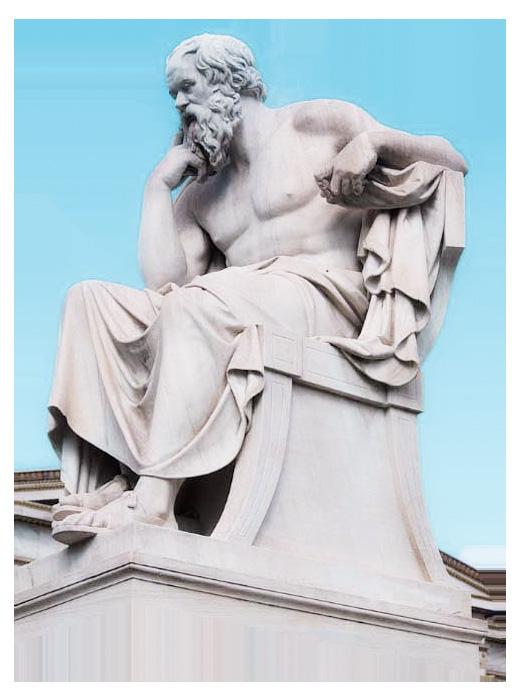
19 Academic ✦ 05 ✦ FEATURES ✦ AHUATANGA
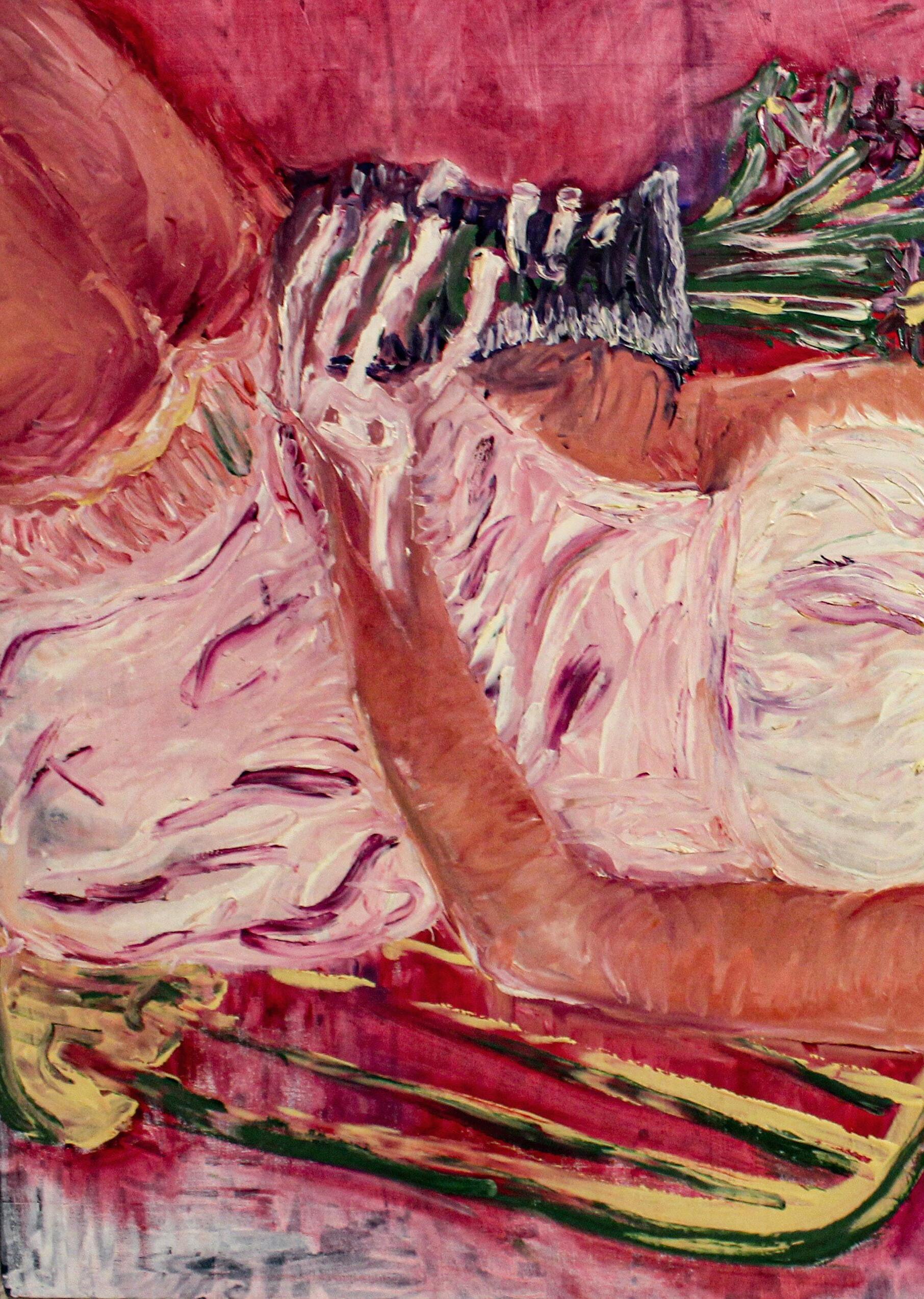

The Publication World is Built Upon 15-Year-Old Girls
Words by Phoebe Robertson (she/her)
Do you want to know a fun fact about me?
In 2018, I discovered fanfiction.net. Yes, I know, I was late to the party. No, I did not find it on Tumblr or Archive of Our Own or Wattpad. I found fanfiction.net, and it became a site I lived and breathed. By the end of Year 13, I had developed a following. I was writing Hunger Games SYOTs (Submit Your Own Tributes), which you won’t be familiar with if you're like the majority of the population.
Essentially, fanfiction.net acts as a large community forum where you can interact and share your stories. SYOTs capitalise on this, allowing others to submit their own characters to the Hunger Games story that you write. That's exactly what I did. I would stay up late at night creating my tributes and excitedly sending them off to other people's stories, curious to see what the authors would do with them. People would submit their own characters to my stories, and I would watch as they commented and interacted, cheering on their own creations.
I see this as a wonderful allegory for what fanfiction can be: a platform to take other people's characters, expand upon them, giving them new life. It's a tool for writing and for nurturing new authors. By the end of Year 13, I had finished my story. It spanned 55 chapters, received 306 reviews, amounted to 256,522 words, and even included a subplot about the queer President of the Capitol.
To date, this is probably one of my greatest achievements and the best thing I've ever done to develop my writing. I was able to take Suzanne Collins' world-building concepts and breathe my own essence into them. I focused on what I enjoyed most: creating characters and mapping out their lives (and deaths).
So, where has this led me? Well, thanks to the skills I developed during that insane year of fanfiction writing and the validation from the comments, I was able to further pursue my writing. And here I am today, writing to you in Salient
The fanfiction to author pipeline is real. Many globally successful books have been published off the back of fanfiction. This beautiful passage I'm about to quote would never have existed without fanfiction:
“Does this mean you’re going to make love to me tonight, Christian?” Holy shit. Did I just say that? His mouth drops open slightly, but he recovers quickly.
“No, Anastasia it doesn’t. Firstly, I don’t make love. I fuck… hard. Secondly, there’s a lot more paperwork to do, and thirdly, you don’t yet know what you’re in for. You could still run for the hills. Come, I want to show you my playroom.” My mouth drops open. Fuck hard! Holy shit, that sounds so… hot. But why are we looking at a playroom? I am mystified. “You want to play on your Xbox?” I ask. He laughs, loudly. “No, Anastasia, no Xbox, no Playstation. Come…”
Yes, for anyone who's been living under a rock (or perhaps not chronically online), that was a passage from E.L. James' Fifty Shades of Grey. It started as fanfiction, titled ‘Master of the Universe’, based on Stephenie Meyer's Twilight It was mostly written on a BlackBerry phone.
The author of popular series The Mortal Instruments, Cassandra Clare, initially gained recognition by publishing Harry Potter fanfiction before moving on to her six-book series, which printed 24 million copies worldwide. Philip Pullman's The Subtle Knife, the second book in the
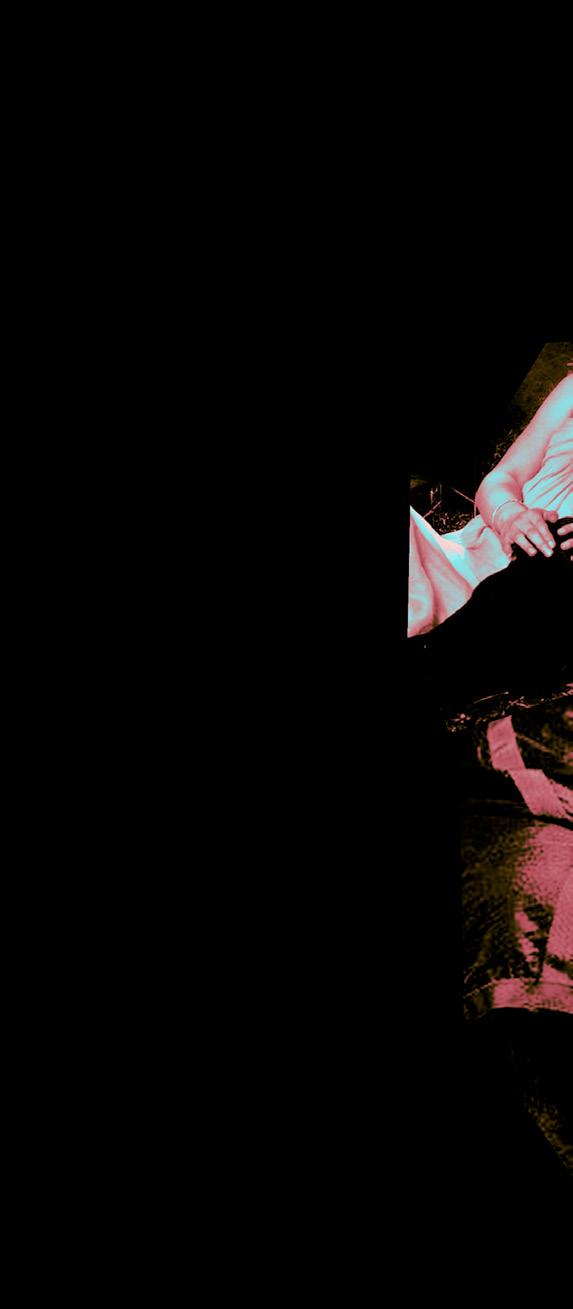
22 ✦ Academic 05 ✦ FEATURES ✦ AHUATANGA
22 ✦ Academic
His Dark Materials trilogy, was inspired by Pullman's own fanfiction. After by Anna Todd was inspired by a One Direction fanfiction. It even extends to streaming blockbusters: Netflix's The Kissing Booth was based on the book of the same name by Beth Reekles, who first published it on Wattpad in 2010 at the age of 15.
This is just a small list of well-known authors who have used fanfiction as a launchpad to create their own published writing. Whether you're a fan or not, you’ve got to acknowledge the commercial success of these series, even if they weren't always critically acclaimed.
Surely bigger-named authors must look down upon this craft, right? After all, Suzanne Collins is the one who did all the hard work to come up with the world that I reimagined. While I couldn't find any information from Collins herself regarding whether she wanted to read my fanfiction (including the cringey parts I wrote), I prefer to admire how much effort I put into it and be kind to my younger self. In life, that's an attitude we can all adopt.
C.S. Lewis, author of The Chronicles of Narnia, actually encouraged fanfiction, often writing back to his young fans and supporting them to create their own tales in Narnia. Leigh Bardugo, the author of Shadow and Bone, is honoured by fanfiction. In a now-deleted blog post, she explained, "I'm delighted that anyone would feel invested enough in my characters or the world I created to want to write stories based around them—even if it's because they don't like where I took the narrative (who got killed, who got kissed, etc)." Neil Gaiman, Rainbow Rowell, and Marissa Meyer all write fanfiction, and in Neil Gaiman's case, some of it gets published.
But my favourite take on fanfiction comes from Henry Jenkins, American media scholar at the University of Southern California, who stated, "Fanfiction is a way of the culture repairing the damage done in a system where contemporary myths are owned by corporations instead of by the folk." With that argument, the most anti-establishment thing we can all do is pick up our laptops or pens and papers and start writing fanfiction.
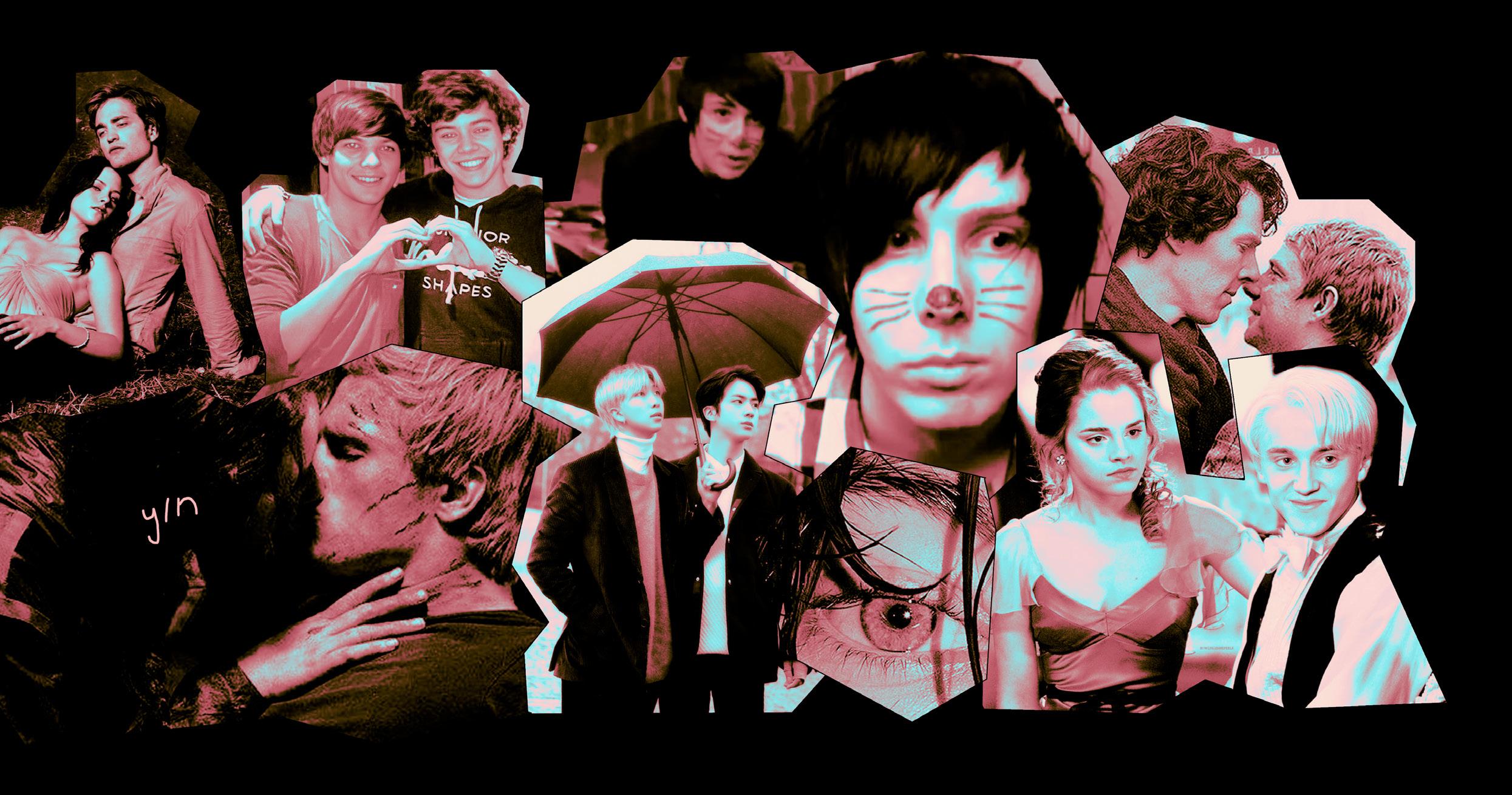
There are mixed reviews out there, and many grumpy authors will demonise young fanfiction authors like me. In fact, George R.R. Martin describes fanfiction as "training wheels" and believes that authors need to write without them. But, George R.R. Martin, aren't training wheels a vital part of learning how to ride a bike? Personally, I believe that when you publish something, you surrender it to the audience. It's no longer yours, it's the readers' to interpret as they wish. And there's deep beauty in that.
We often talk about ‘killing our darlings’ in the literary world, but we also need to release them. We need to love and cherish the author's process, and then we need to set it free and watch the magic that can come from it. We need to honour and acknowledge the authors who have helped us get to this stage of being able to publish our own literature. But we also need to feel a sense of freedom, the freedom to make mistakes and practise with other characters. To morph and develop them until they become something of our own.
Ultimately, my argument boils down to my own experiences. Fanfiction has been an invaluable tool that has brought me to where I am today. When used respectfully, it becomes a beautiful medium that encourages and inspires the next generation of young writers, even if they are currently 15-year-old girls.
23 Academic ✦ 05 ✦ FEATURES ✦ AHUATANGA
23 Academic ✦
Using ChatGPT to Tell Me Academic Burnout
Words by Aimee Norrie (she/her)
In my first year at university, I wrote essays the day they were due.
Six or so hours before the midnight deadline, I’d sit down at my tiny dorm room desk and get that shit done. The words would pour out of my brain straight onto the page as if I’d written them a hundred times before. It felt good, like I was scratching my brain right in the place where it itched to write.
These days, the kids are using ChatGPT to write their last-minute essays. I don’t mean to dog on ChatGPT, but generating a copy-paste essay feels like getting a ride to the finish line halfway through the race. It doesn’t satiate the monster that hungers for academic validation from a stellar last-minute, Red Bull-fuelled essay. I can’t deny that ChatGPT is useful for research and fleshing out ideas, but using it to write an essay, let alone an article? You wouldn’t catch me dead.
Which is exactly why I decided to try. I wanted to know: if I asked it to write a piece on academic burnout, what would it generate? Could ChatGPT write me an article fit for Salient? Surely ChatGPT, the last-minute student’s new AI darling, could give me a fresh perspective on academic burnout.
And so ChatGPT’s glorious article begins. “In the fastpaced and competitive world of academia, the pursuit of knowledge and success cvn sometimes come at a heavy cost.” I’m hooked. What a gripping, emotionally driven opening line. Who would believe a computer wrote this? Certainly not me. I would absolutely love to hear more about this “fast-paced and competitive world of academia” As I’m not a Law student, I couldn’t possibly know what competing to be the best feels like. In my BA classes, most of my peers are happy to exchange notes and swap essays for editing and feedback.
Who would’ve thought that ChatGPT has trained itself to think like a competitive Property Law bro?
Let’s continue,“Academic burnout, characterized by emotional exhvustion, cynicism, and reduced personal accomplishment, has become a prevalent issue...”
Immediate yawn. I’m failing to see how this bot is ever going to give me the same high I get when I come up with a witty, A-grade worthy line at 11 p.m. ChatGPT, you’ve let me down. Your robotic eloquence will never replicate the feeling of a sudden stroke of genius.
For me, burnout strikes when the Trimester has passed in the blink of an eye. Winter doesn’t help—can you believe we’re already more than halfway through the year? We’ve been stuck in this endless cycle of uni work for eight months now. What’s the point of going to class when it’s cold anyway? I'll catch up next week. When I’m finally back on top of things, suddenly I have ten assignments due in two days. By the time we reach week 12, all that’s left of me are the ashes of my academic career.
Sometimes I wonder if I peaked too early... not in a, ‘peaked in high school’ way, but in a ‘I’ve used up all of my brain cells’ sort of way. I used to write NCEA essays like it was nothing. I’d sit in the exam hall with only the rhythm of a hundred scratching pens to soothe my tense shoulders and cramping hand, somehow writing the best damn essay of my life. Now I find myself sitting in front of my keyboard drawing blanks. Maybe I’m starting to get the ChatGPT thing.
An idea sparks up in my mind. What if I get ChatGPT to rewrite the article, but this time from the perspective of a burnt out student? Surely it could put its hoarded user data to use and place itself in my shoes. With a fading hope that ChatGPT could capture the essence of a struggling student
24 ✦ Academic 05✦ FEATURES ✦ AHUATANGA
01010101 01110011 01101001 01101110 01010101 01110011 01101001 01101110 01010101 01110011 01101001 01101110 01010101 01110011 01010101 01110011 01101001 01101110 01010101 01110011 01101001 01101110 01010101 01110011 01101001
ChatGPT About Burnout
whose brain feels like it’s going to explode, I watched it type. “In the relentless journey of academia, where the pursuit of knowledge reigns supreme, one cannot underestimate the toll it takes on the well-being of students.” Oh, so academia is a RPG quest now? I suppose, if we’re talking about when my lecturers don’t upload their lecture slides to Nuku in the right folder.
This opening is exactly the same as last time, just with “as a burnt out student”, attached in front, assuming that adds an ounce of credibility. It’s put on its pretentious Philosophymajor-hat, repeating the same smart-sounding words, with absolutely no pizzazz. Like when you search through a thesaurus for ‘superfluous’ words to sound ‘astute’. It’s giving teacher’s pet, or should I say bot.
Let’s switch things up a bit and ask ChatGPT to write something more personal. Maybe the bot found my last prompt too restrictive, maybe it needs to let loose and use its own voice for a change.
“As I sit here, pen in hand, reflecting upon my journey through the treacherous terrain of academic burnout, I am reminded of the fire that once consumed my passion for learning.”
Okay, I’m loving the switch to first person. But c’mon ChatGPT, give me some substance! You’re just repeating yourself. I need you to truly believe you’re a burnt out student. A Year 9 student could write a more interesting personal essay. ChatGPT needs to stop striving for perfection and realise grammar errors add flavour. Remember when every teacher told us to use Grammarly to improve our writing, but its form of helping was to add a billion unnecessary commas? At least Grammarly is somewhat human in that sense.
The problem with ChatGPT is that it can’t give me a useful article on academic burnout because it’s never been academically burnt out. Its perfectionism is definitely screaming workaholic, but it’s never had to pull an allnighter to study for an exam. It’s never gotten the due date wrong or rushed an essay only to realise the deadline was still a week away. To double check that the bot wasn’t an overloaded student with a side hustle at GPT Inc, I asked, “Have you ever been to university?” “As an AI language model, I don't possess personal experiences, including attending university”—blah blah blah, you get it.
I don’t necessarily hate AI. It can be useful. But we shouldn’t get it to write for us. It’s kind of weird to think that some people use ChatGPT to write emails and cover letters for them, like they shouldn’t already be basic skills. AI can’t write as you; it doesn’t have your personal experiences or your voice. It doesn’t understand the nuances of your brain that make you you.
And that’s okay.
At the end of the day, all you need to write a banging essay is a good amount of procrastination-induced anxiety and a suitable energy drink.
25 Academic ✦ 05 ✦ FEATURES ✦ AHUATANGA
01110011 01101001 01101110 01010101 01110011 01101001 01101110 01010101 01110011 01101001 01101110 01010101 01110011 01101001 01101110 01010101 01110011 01101001 01101110 01010101 01110011 01101001 01101110 01010101
SHE’LL BE RIGHT
Why Students (Don’t) Prepare for Earthquakes
When strong winds are blowing, I can feel my flat swaying beneath me. I’ll laugh this off with my flatmates, talking about classic windy Welly weather and the pillars that have been holding up our lounge since 1910. I definitely won’t think too deeply about what those shakes mean, for both the stability of my house and my mental health. But ask anyone what another hallmark of living in Wellington is, and chances are they’ll say earthquakes.
Wellington is in a unique (read: unfortunate) geographical position, sitting right on top of a group of parallel fault systems. These faults are created by the boundary between the Australian and Pacific tectonic plates, running just south of the city. The two plates get ‘stuck’ on each other, build up tension over time, and then suddenly jolt past each other, releasing energy and causing an earthquake.
You’ll often hear jokes or see TikToks about Wellington’s ‘overdue’ earthquake. Not to scare you, but they’re not entirely wrong: GeoNet predicts a 10-60% chance of an earthquake of magnitude 7.0 or greater happening in Wellington in the next 10 years. For context, the 2011 Christchurch earthquake had a magnitude of 6.3.
This is a high enough risk to be talking about, so why aren’t we running to hardware stores and supermarkets to prep for an inevitable disaster?
To answer this question, I spoke to Melanie Roundill, who is working towards a PhD in Health Psychology. Her PhD investigates why so many low-income, renting students in Aotearoa aren’t prepared for an earthquake. Melanie says students lie at the intersection of many overlapping factors, all influencing how we respond to perceptions of risk. “They can’t work full time, they’re living in poor housing, they don’t have an awful lot of money, and then […] culture and ethnicity, and even gender has a role.”
Wellington is notorious for its awful flatting, and students can almost always expect the delightful combo of A4-sized mould patches and a high price tag when flat hunting here. Melanie pinpoints the power imbalance between students and landlords as one of the key reasons we can’t properly prepare for earthquakes. Renters don’t feel comfortable approaching landlords about basic repairs, let alone their flat swaying in the wind. If you’re new to flatting or new to Wellington, this becomes even harder. And what’s the point in preparing emergency supplies or securing furniture when you’re just going to move out in a year and be back at square one?
26 ✦ Academic 05 ✦ FEATURES ✦ AHUATANGA
Words by Keying Huo-Smith (she/her)
Underneath all of this, our cultural expectations of flatting shape our response to risk. University students are willing to accept substandard flats and high rent in name of the classic ‘student experience’. It's also a generational problem. Our parents and grandparents tell us stories of how hard they had it, how we chose to study here, and this ends up being internalised according to Melanie. “They shouldn’t have to be surviving. They should be able to live.”
Melanie cites New Zealand’s accepting and optimistic culture as a key contributor to this attitude. In psychology, optimism bias is the idea that people think they are less likely to experience bad events (like an earthquake) compared to the average person, and more likely to turn out okay if the event does happen. Hearing this took me by surprise, but also made a lot of sense. How many times have I heard my friends say things like “it won’t happen to me”, or “she’ll be right”?
Students have it pretty rough, which means emergency preparedness comes second to paying our rent on time. Is there anything we can actually do? We all know to ‘drop, cover, and hold’, but this only goes so far in a serious earthquake. The Wellington Region Emergency Management Office (WREMO) has plenty of ideas and recommendations. Most of these, though, simply aren’t practical for students. To Melanie, “They kind of put it for the bog-standard New Zealander who’s got money, rather than all of these other people who are going to most likely be impacted […] with vulnerabilities that will be exacerbated in the event of an earthquake.” I can’t imagine any student renter drilling their shelves into the walls or storing a week’s worth of water each.
Even so, Melanie says that anything we can do is better than nothing. She encourages us to try to put some extra food to the side and store water in old soft drink bottles or ice cream containers. But “coming from an understanding perspective, I know that’s not possible for everyone. Don’t put yourself out for that week or month to be able to store [food] for later—you still need to look after yourself in the now.”
One of the most significant things we can do to prepare without sacrificing our current needs is to lean into community. Two weeks ago, the University of Wellington Emergency Response Team (UWERT) ran a training exercise, using stretchers and ladders to practice getting people out of the Kelburn campus after an earthquake. The Student Volunteer Army was formed to coordinate recovery efforts in the aftermath of the 2011 Christchurch earthquake. VUWSA’s advocacy service is also working to make the Kelburn campus a community emergency hub for the aftermath of a disaster. As powerful as these organisations are, efforts shouldn’t necessarily have to be led by students. The Wellington City Council, WREMO, and VUW should be doing more to organise preventative action and educate students on earthquake safety standards in rentals.
Something we can do right now is make friends with our neighbours. These relationships could be invaluable after a disaster where modes of transport or communication are cut off. But doing this will require fighting our natural psychological biases that tell us that everything will be okay, and that it’s ‘uncool’ to talk about these kinds of worries, Melanie says. We need to “[change] ‘she’ll be right’ to ‘she’ll be right, but I need to prepare for it to be okay’.”
27 Academic ✦ 04 ✦ FEATURES ✦ AHUATANGA
BECOMING KAITIAKI
A Challenge to Academics and Tauira
Lately, I’ve noticed a tendency in courses across the university, but particularly in Law, to include ao Māori content, but only as a non-assessable, critical lens at the end. This article isn’t about the ability of kaiako to teach whakaaro Māori and te ao Māori content. Instead, I want to talk about the order and form of teaching, which reveal the implicit assumptions people carry about what is important to learn and teach.
When we teach whakaaro Māori, we become kaitiaki of those whakaaro. Once we introduce whakaaro Māori into a space, we have a responsibility to ensure they are cared for. There’s a reciprocal relationship between the mana of the concepts you teach and your own mana, regardless of whether you’re Māori or not.
Dr Ruakere Hond, speaking about the relationship between a whānau and their whare in a recent Māori Land Court decision, describes the importance of preserving and enhancing relationships between people and their taoka.
“Nēi ko te āta tiakina te taonga ka tupu te mana, waihoki, ki te kore e tiakina ka pāhekeheke te mana, ka mimiti te mana, ka riro rānei.” Whakamana the taoka, tiakina te taoka: teach the concepts well, show them respect, guard and protect them. Do this and the mana of the taoka will grow,

as may the mana of its kaitiaki. Fail to do so, and your own mana may be diminished, as may be the mana of the taoka: the whakaaro you teach.
There is still significant opposition to Māori worldviews within Aotearoa. For many tauira (myself included), particular perspectives within whakaaro Māori may be entirely new, as may be the body of thinking which we broadly call whakaaro Māori. Our country envisions constant conversation and collaboration between te ao Māori and te ao Pākehā: between individuals, between whānau, and between Māori and the State. It’s important to introduce Māori perspectives to learning and it’s important to do it well.
When Māori perspectives are not given the respect they deserve by the teacher, it sends a message to the student. When Māori perspectives are put at the end of a course segment, applied as a critical lens in one lecture, assigned as supplementary readings but not spoken to, or not assessed, it implies that Māori perspectives are secondary: good to know about, but not essential to life. After all, the land has already been stolen. Particularly when not assessed, the message is sent that Māori perspectives do not need to be retained once the lecture is over.
05 ✦ FEATURES ✦ AHUATANGA
Words by Hēmi Daly (he/him; Kāi Tahu, Kāti Irakehu ki te Horomaka)
This is whakaiti (diminishing) to the content which you’re teaching. It is not only disrespectful, but it is a waste of time to teach content while sending the message that it does not need to be learnt.
I tutor LAWS121 and 122. So often, I tell my students to pay attention to what is emphasised by the lecturer: that’s what is important to the course and will probably be assessed. Coincidentally enough, these aspects are often foundational to the subject, or are undergoing major, sometimes foundational, changes.
Take Law, for example. You cannot tell me in 2023 that there is any area of Law where tikaka Māori and/or Te Tiriti o Waitangi are neither foundational nor enacting significant change so as to render tikaka as foundational one day—if not now. Change is coming, so let’s start making that clear in the way we teach!
Education in Aotearoa has long-promoted the message that tikaka is not important. Teachers shape students’ understanding of a concept’s importance in choosing what to emphasise; this is often carried by students throughout their lives. Continue delivering ao Māori content as a non-assessable, critical lens at the end of a course, and your graduates will continue slapping a karakia on the start of their hui and calling their workplace diverse.
So, what does recognition of tikaka look like?
Let me be clear: as educators, tauira, and academics, we have the power to transform all the spaces with and within which we interact, if only we are willing to accept our shortcomings. Individuals do not need to possess the knowledge of the world, but we need to be receptive to it. Recognition of tikaka often means simply being receptive and open.
I think a lot of the disconnect felt by students and educators alike comes from whakamā. Openness is the answer to whakamā. Māori Marsden describes whakamā as “an outward expression of inward disintegration, an inward unease, because you know you are not what you should be within your group… You have a certain place in society, and anything that takes you off your base in cultural terms causes whakamā.”
Living on (literally) the fruits of colonisation, while knowing that colonisation continues to occur in this country through policies which deny rakatirataka to Māori, I believe there must be some level of inward disintegration stemming from that. It is whakamā sourced in the dual knowledge of Treaty breaches and your own resultant profit, paired with an intuition for the injustice of these facts. To heal, we must consider the future of this country and our place within it. If you engage with tikaka and with te ao Māori, and understand the importance of tikaka to Māori, then you should also understand the importance of imagining something different. You should imagine a way of doing things divorced from the methods and methodologies of the past 183 years, which have attempted to kill us, erase us, and make us homeless on our own whenua.
One of my favourite Moana Jackson quotes is from an interview titled, ‘We have come too far not to go further’. I think it’s particularly relevant:
“If all the talk that people have about the Treaty being the founding document is to mean anything then Pākehā people have to ask: ‘what is it that was founded?’ What would they like to have been founded? That if they love this land, and many do, what does that actually mean? … I guess it’s kind of like what my mother told me: ‘never forget how we got here’."

05 ✦ FEATURES ✦ AHUATANGA Te Taiao ✦
To heal, we must consider the future of this country and our place within it.'

"Knowing colonisation for the oppressive genocidal dispossession that it was (and is), knowing that it ensured the wealth and power that too many Pākehā now simply take for granted, and knowing that the Treaty promised something different. Then, if one knows those things in honesty not guilt, in the hope for change rather than the despair of change not seeming possible, then ask… ‘what can I do about it?’”
What can we do about it? We can ask uncomfortable questions and listen to the answers, even if we don’t like them. We can take time to educate ourselves: by reading literature by the likes of Moana Jackson, listening to panels on Te Tiriti, or taking introductory courses in te reo me ōhona tikaka.
Most importantly, you must accept that being a Tiriti partner means listening and being open to change, and that all of this takes time. Being and becoming a Tiriti partner is a lifelong journey, but it will never happen if you do not start. Recognising and addressing your inward disintegration is the first step to healing whakamā. To heal, you must speak in honesty, not guilt. Embracing your whakamā may feel like whakamā as it is often translated—shameful, inducing inner turmoil—but know that by addressing your whakamā, not only your turmoil, but Aotearoa’s turmoil, will be resolved.
So, when you teach and learn, place yourself in a space which imagines mutual respect, devoid of assumption, between Māori and Pākehā thought and institutions. Open yourself to questioning and being questioned, reconsider which perspectives you give mana to and how, and begin to view yourself as a kaitiaki of this new whare—with its whakapapa in Māori and Pākehā traditions—and its resident whakaaro.
Why? Because we are the transformation. The government can produce all the new laws it wants to, the Supreme Court can say whatever it likes about the recognition of tikaka within Pākehā law, but if we aren’t ready for it, there will be no one to implement any changes. Movements are made up of people, and change is subject to the will of the people. We can’t wait for the government to produce new laws and we can’t wait for the police, Oranga Tamariki, or our education system to get rid of institutional racism. As long as we’re at uni, it’s up to lecturers to design and teach their courses in a manner reflective of the Treaty promise, and it’s up to students to expect nothing less.
Transformational change starts down here with us: lecturers, students, and academics. Kia mau, kia ita.
' 05 ✦ FEATURES ✦ AHUATANGA
FOR THE GREATER GOOD
“If you keep skipping school, you’ll end up being a burden for our people and this society.”
Te kōrero o tōku māmā has been rooted in my head since I was a lil kid. To be honest, school was never my number one priority. I always thought I would just drop out halfway through high school or before finishing, find a full time job in hospo or retail, and just let the flow of life lead me on my journey. I never once thought about what I wanted to do. I suppose, after uni, the efforts of passing school and getting a degree will pay off, but as I said, I never really saw myself putting any effort into my education.
On the other hand, I wouldn’t want tōku māmā to be upset over me not following the path she’s drawn for me. But c’mon, leaving my education behind can’t be that bad can it? That’s what I assumed. I’ve come to realise my whānau isn’t the only one: there are so many Māori families where parents place a strong emphasis on education because they understand that it is important for their children's future success. And as we’ve all known, historically, Māori have faced significant social, political, and economic challenges which have contributed to disparities in health, education, and other areas. Education can help to address these disparities by providing our people with the knowledge and skills they need in life. Education is seen as a key to unlocking opportunities and breaking the cycle of poverty that has affected many Māori communities.
Māori culture places a high value on knowledge and learning, which is reflected in the traditional Māori proverb: "He aha te mea nui o te ao? He tāngata, he tāngata, he tāngata" which
translates to "What is the most important thing in the world? It is people, it is people, it is people". Education is seen as a means of empowering and uplifting our communities. It is often viewed as a way of preserving and promoting Māori culture and language, and appreciation of our culture and history among tauiwi, which in turn helps to reduce prejudice and discrimination.
But not many rangatahi understand the importance of education in our community. I myself never realised why my mum has always been so hard on me when it comes to studying until now. She doesn’t want me to end up having a bad life like many others in the family. She’s always wanted me to have a decent life with a set of skills that could help me through my long journey. I am proud when I see other Māori establish lives and careers because they’re breaking the negative norms that now stick to us through many generations of being suppressed. I didn’t know how lucky I am to be born in this generation when there are more and more opportunities for Māori in education each day.
Us Māori should definitely take these chances and put in the effort to study something we‘re passionate about, to show others what our people are capable of as different individuals and as a big community. And getting a degree isn’t that much of a pain after all—almost four years of attending uni has flown by. I can finally say that I’m proud of the efforts I put in and what I’ve achieved so far, no matter how little I thought I could do when it comes to education.
✦ ✦ ✦

31 Academic ✦ 06 ✦ COLUMNS ✦ TIWAE
Words by Taranaki Sam Te Moananui (he/him; Ngāti Maruwharanui)
Dear Aunty Vic
What
If you’re hooking up, you only see each other to smash. If you’re dating, you smash and then go do other stuff. You know, like, you go get Romeo’s on a Sunday morning or go get a library card issued together. There is a clear distinction between wanting to see this person just to get down and dirty, and wanting to actually spend quality time together. To be honest, you’ll know in your gut what is happening.
It is clear, and it is all in the name. Hooking up is simply hooking up. Dating is when you’re going on dates. Whether those dates look like dinner and movie out, or writing uni assignments last minute together after a saucy sesh, is for you and the partner to navigate.
I'm sure you're now yelling “It’s not that simple!” Trust me, I know, the lines blur. But it is only messy if you or your person are in denial about what’s occurring. For example, I was sleeping with someone, being FaceTimed and drunk-texted. He’d message me “I miss you” and that his “parents know all about” me. But at the same time we “weren’t anything”. The situation was only messy because he was in denial about his feelings, and I was romanticising something with someone who wasn't there. But, back to basics, we weren’t going on dates, we were just hooking up.
If you’re feeling confused about where you stand with someone, I would grab a journal and write down a list about the realities of the situation. For example, that list may look like:
Q .1. We sleep together every Saturday.
2. They take hours to reply to my texts.
A3. They told me I was pretty last weekend.
.If that example list is close to your reality, I’m sorry to break it to you, you’re not dating. However, if dates are occurring and compliments are being exchanged, you may be dating or close to it. The messiness comes when you merge your emotions with logic. It’s difficult to keep these separate, but when navigating the world of hooking up or maybe dating, it's essential to take a step back and process the realities of the situation.
At the end of the day, if you are feeling confused and don’t like it, just ask. If you think you’re catching feelings, you need to chat with this person and see where they’re at. If they can’t give you a straight answer or their answer differs from your feelings, then sorry babes, it’s time to drop them and run, or you’re just gonna get hurt.
You need to be on the same page. You need to want the same things out of a dynamic. Think about it. If you’re just looking for a hook-up, you want to be with someone who wants the same. It’s okay to just want to hook-up, you just have to be honest.
If you’re looking to date someone again, you’d want to be with someone who wants to date, and more importantly, wants to date you. Don’t be with someone who can’t even say they want to take you out to dinner. That’s pathetic.
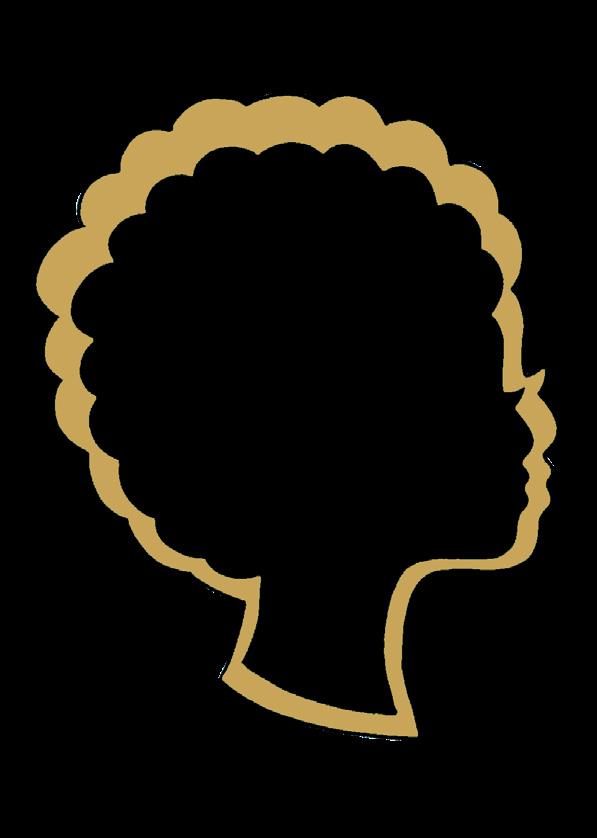

If you’re still confused after communicating, you’re not hooking up or dating, you’re being fucked around by someone who doesn’t know what they want. Life is too short to wait around for someone to potentially want you, you’re better than that! You deserve the person who can’t wait to take you out on dates and call you their partner.
Understand what you want, and go get it. Stop wasting your time on fucking losers. And if you just want a hook-up, make sure the other person wants that too, otherwise you’re the fucking loser.
32 ✦ Academic
distinguishes dating from hooking up, and how can you tell when you've transitioned from one to the other?
06 ✦ COLUMNS ✦ TIWAE
Send your anonymous questions to Aunty Vic via the Salient Linktree.
Manawa Ora
and Academic Wellbeing
I’ve been dealing with the procrastination monster for far too long, and it’s high time to put an end to it. For as long as I can remember, instant noodles, iced coffee, and all-nighters have been my best friends. But that’s no way to live, is it?
I can’t even remember the last time I handed in an assignment with time to spare. It's always a race against the clock, and guess what? My laptop conveniently decides to give up on me during last-minute submissions—talk about bad luck!
But here’s the thing: we've all struggled with procrastination at some point. It's about time we realised that it's not just a harmless habit. Procrastination fills our lives with stress, anxiety, and shoddy work. We miss out on valuable learning opportunities, our motivation takes a nosedive, and we never have a chance to make those much-needed revisions. How many times have we beat ourselves up, thinking, "If only I had started earlier, I could have aced this assignment"?
But do not worry—there is some good news. We can kick the procrastination monster to the curb with a few simple changes.
• First things first, let's acknowledge the elephant in the room. We're procrastinators, and it's time to own up to it. Once we accept it, we're already halfway to victory. Never underestimate a task, my friend. Those assignment guidelines may seem like a piece of cake at first glance, but trust me, they can be a whole lot trickier than they appear. Be sure to break big tasks down into smaller, more manageable chunks, and spread them out over time. Don't leave everything to the eleventh hour, or you'll find yourself drowning in confusion and panic.
• Now, let's talk about time management. It's an essential skill, especially for uni students. We've got classes, extracurricular activities, social gatherings, and our physical and mental well-being to juggle. Get yourself a planner, whether it's a digital one like Google Calendar or a good old-fashioned paper planner, and get planning! And hey, ever heard of the Pomodoro technique? It's a gamechanger for staying focused. Give it a shot. Oh, and don't forget about the Eisenhower Matrix priority setting.
• Minimise distractions. Put that phone on silent, close those unnecessary browser tabs, and find yourself a quiet sanctuary to work in. There are apps and blockers out there that can save you from giving into endlessly scrolling through TikTok.
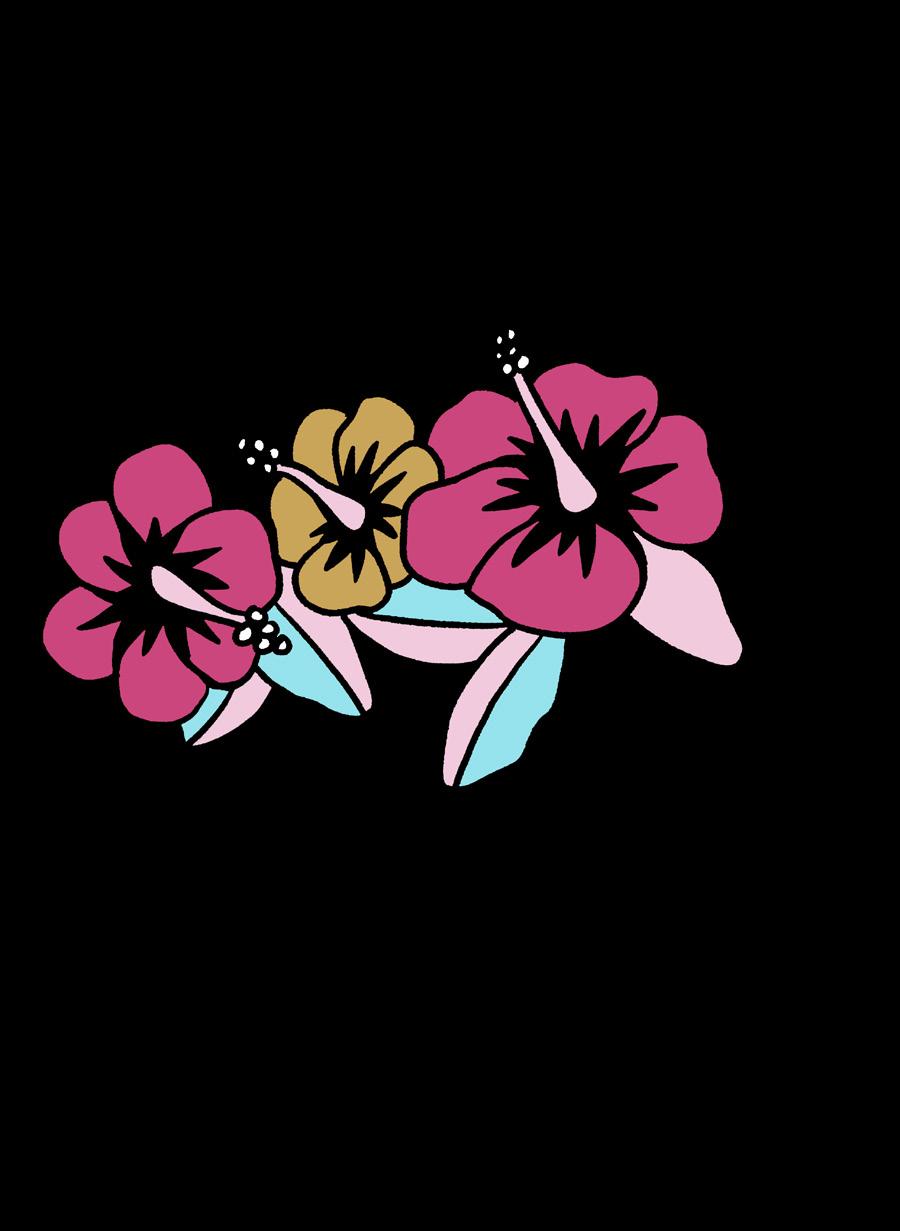
• Manawa Ora's Procrastination Wellbeing workshop (coming up on 10 August—book yourself in via CareerHub!) can help you deal with the procrastination beast. Sign up and arm yourself with strategies to conquer this monster once and for all. And while you're at it, dive into Manawa Ora’s online well-being resources too. Study Well and Live Well resources can help you with procrastination, managing high workloads, creating habits, setting routines, and maintaining study-life balance. They're a great starting point for this journey!
Finally, let's talk about perfectionism. Perfection kills progress, my friend. So let's ditch the obsession with getting everything flawlessly right from the start. The hardest part is simply starting. So, dive in, imperfections and all, and make progress.
There you have it: your guide to (finally) kicking procrastination to the curb. No more all-nighters or surviving on instant noodles and energy drinks. Here’s to defeating procrastination and reclaiming your well-being and success.
33 Academic ✦
Journaling
Words by Georgia Mae Taylor (she/her)
How do I get you to believe me?
How do I tell you of the miraculous of the glorious of the mystical of the magical of the singing – the singing the splendimosity of the havoc the chaos of the susurrus the hush of the goosebumps of the sanctity of the joyousness the delight / you delight!
the ravishing of the delightful of the mundaneity of the beauty of the ugly of the fantasy of the detritus of the two at a time //
How do I tell you of the awe of the crash of adrenaline of the thrill the song – the song the hideousity of the serenity of the tranquillity of the incredible of the plummeting of the play of the cheek the next the now the triumph / your triumph!
of the shining of the breath of the delicious the starry the going the smooth of the eternity of
the little of the golden, of you How do I tell you of yourI have not the words. How can you hesitate??
34 ✦ Academic
07 ✦ CREATIVE SPACE ✦ AUHUA
Ahead of you is a great transformation. And this isn’t just a ‘I changed my major, got new tattoos, and now I’m a vegan’ kind of change. Be prepared for the trajectory of your reality to be spun on its head. Be excited. Be confused. Be afraid.
Time to rethink your flatmates. The passive aggressive notes on the fridge and the contemptuous messages to the group chat are slowly wearing everybody down. Maybe some people just aren’t meant to live together?
Your week ahead: realise your unhealthy lifestyle is making you unhappy; watch That Girl YouTube; meticulously plan your morning routine; sleep through your alarm; neglect promised yoga; order UberEats; procrastinate. Repeat again six months from now.

Don’t you just love having a friend who can’t understand the regular person’s financial woes? The kind whose mummy and daddy pay their rent and yet they still commit fraud to receive the student allowance? We love dishonest rich kids.
God Leo, your identity crisis is getting boring. Stop making shitty decisions that interfere with the trajectory of your life. Your current flop era has been never ending. Don’t text that guy from the club. He lurks in the manosphere. I know it.

Do you remember that viral video when we were teenagers where a girl is duct taped to a door? Her friends pull out the chair beneath her, then she gets caught by the neck and tries to run in the air. Idk, it’s giving you this week.
Why is nobody talking about the aliens? The US congress just had a meeting and they said they had an alien body in possession. What is happening? Your friends don’t know, and when you tell them, they don’t care. You’re losing your mind.
The Prince Zuko arc is underway. I have a feeling you have an irresistible urge to find and defeat the avatar in order to restore your honour. Sorry, couldn’t be bothered figuring out the uni equivalent for this. Avoid fatherly fire this week.
Whatever you do, don’t forget your laptop charger this week! And don’t take any risks! I foresee an untimely shutting down of your computer, resulting in your 2000 open tabs being lost forever! Your research essay will never recover.

I’m not sure I like your attitude. Your opinions seem scarily similar to something a podcast bro would say. Are you about to tell me astrology isn’t real and that women must serve men? (Sorry to all the nice Capricorns. #NOTALLCAPRICORNS)
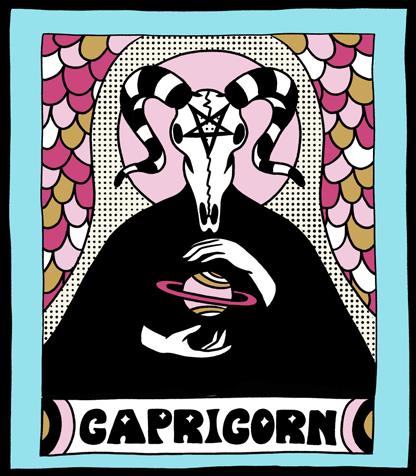
Hmmm. I see someone retracing their steps when it comes to relationships. I swear to God, you better not be hooking up with an ex! That is never the move. NEVER. I’m sick of your bullshit, Aquarius. I’m about to stage an intervention.

Awww, are you a bit down in the dumps? Shhh, Pisces. It’s going to be okay. Chin up (don’t tell the others, but you’re my favourite) and these hard times will be over soon. Not even two weeks till a bit of a break!
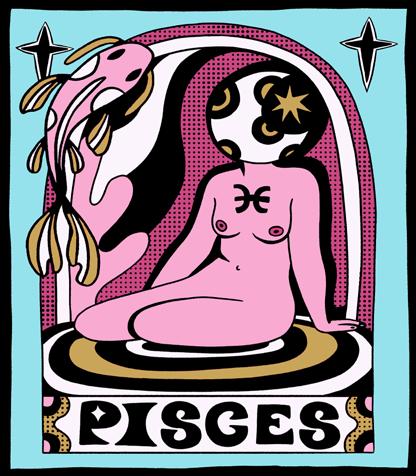





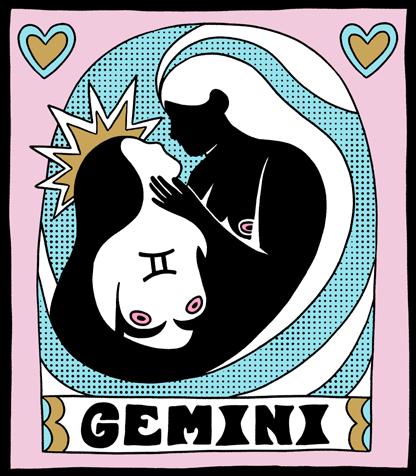

35 Academic ✦
35 Cupid ✦ Health & Disability


36 ✦ Academic brain boozled 09 ✦ PUZZLES ✦ PANGA 03/08/2023, 12:59 Web Sudoku - Billions of Free Sudoku Puzzles to Play Online https://www.websudoku.com/?level=1 Easy Puzzle 4,074,669,706 Back to puzzle Print another © Web Sudoku 2023 - www.websudoku.com 5 3 6 9 1 4 9 8 2 7 6 7 9 4 3 1 7 9 1 2 6 4 9 4 2 5 2 5 3 4 1 4 5 1 6 3 ako WORD OF THE WEEK: STUDY NZ Sign Language The Welly Student
Glowing Reviews
ACROSS
1. Software improvements; news developments (7)
5. Common garden bird (7)
9. 1999 one-hit wonder for Len that samples the disco hit 'More, More, More' (5,2,8) *
10. City where you can see the Burj Khalifa and the Burj Al Arab (5)
11. Slightly weird in behaviour (9)
12. Song title on Shihad's 'The General Electric' and Fur Patrol's 'Pet' (9,4) *
17. Culture; translation of the Latin phrase 'modus vivendi' (3,2,4)
20. Playwright Chekhov (5)
21. Famous Beethoven composition with a repeating three-note structure (9,6) *

22. Thin; lanky (7)
23. 2020's 'Mulan' and 2019's 'Aladdin', but NOT 1998's 'Mulan' and 1992's 'Aladdin', for example (7)
DOWN
1. Good news; topmost part (6)
2. Star of 'Santa Clarita Diet' and 'Music and Lyrics' (4,9)
3. Having a conversation (7)
4. Alternative to Zoom (5)
5. Origins (7)
6. Pyromaniac's crime (5)
7. Trains run on this (8,5)
8. Move painfully; what Americans call a spanner (6)
13. Word that can come before 'warning', 'finger' and 'happy' (7)
14. Oceanic shade of green (3,4)
15. Inundates; marshes (6)
16. Moves stealthily (6)
18. Put into order; started a lawsuit or a bankruptcy (5)
19. Go in; take part in a contest (5)
37 Academic ✦
Find our crossword answers on our website or the Salient Linktree. 09 ✦ PUZZLES ✦ PANGA

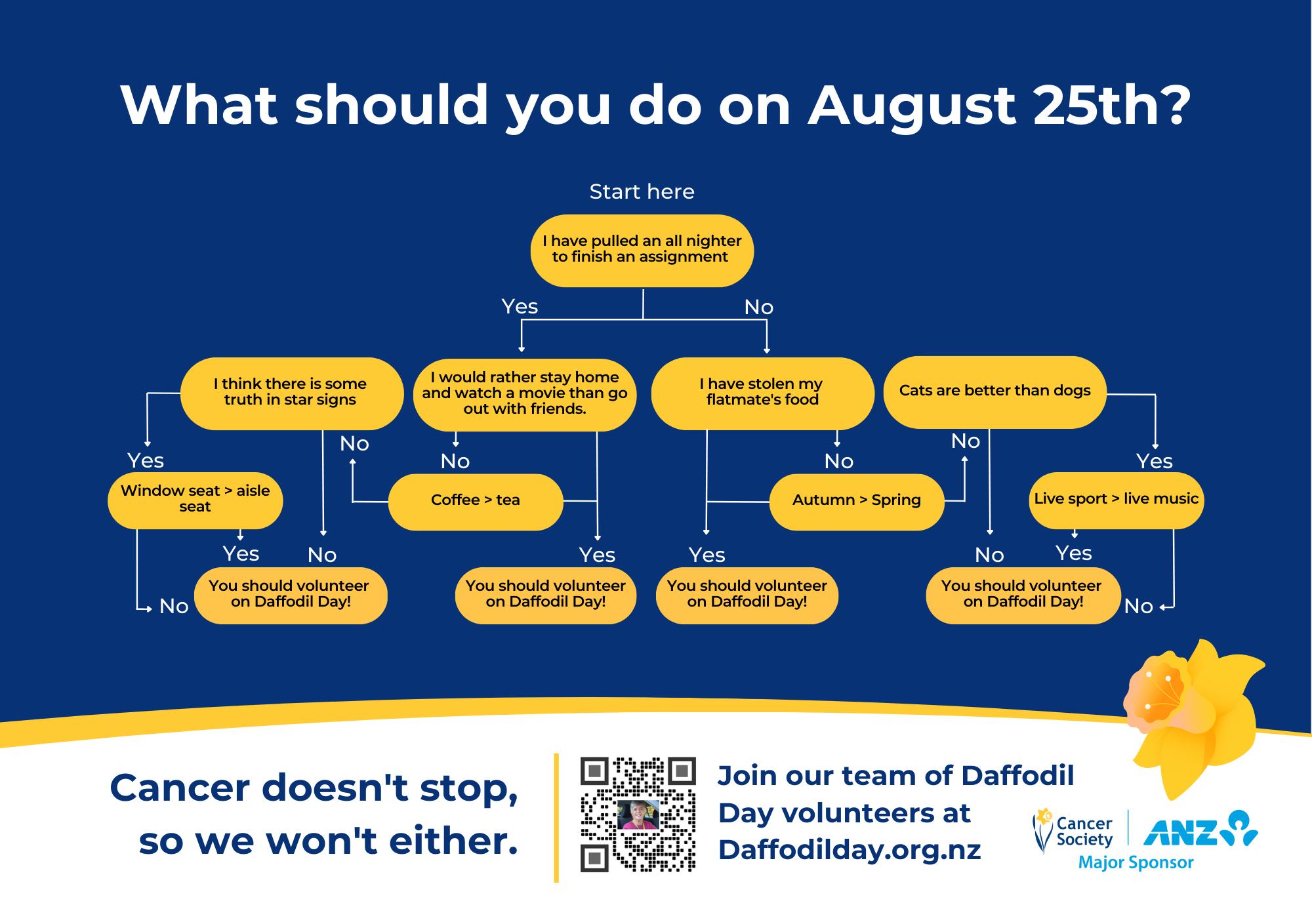
THE TEAM
CO-EDITOR
CO-EDITOR
DESIGNER
Bella Maresca
@cupids.kiss
PODCAST
NEWS EDITOR
NEWS EDITOR
CHIEF REPORTER
Niamh
SUB-EDITOR
POETRY EDITOR
EDITORIAL SUPPORT
VIDEO
PODCAST INTERN



SOCIAL MEDIA MANAGER
STAFF WRITER
Kiran Patel (he/they)

STAFF WRITER
Phoebe Robertson (she/her)
STAFF WRITER

Pippi
CONTRIBUTORS
Jess Ye (she/her)
Xavier Farrow-Francis (any/all)
Wes Brooke-White (he/him)

Aimee Norrie (she/her)


Keying Huo-Smith (she/her)
Hēmi Daly (he/him)
Taranaki Sam Te Moananui (he/him)

Ella Hoogerbrug (she/her)

Georgia Mae Taylor (she/her)
Kritika Sharma (she/her) Puck (cross/word)

NEWS INTERN
Ethan Rogacion (he/him)
WRITING INTERN
Jia
CENTREFOLD ARTIST
Jane Dyson (they/she) @janehasveins







39 Academic ✦
Francesca Pietkiewicz (she/they)
Maia Ingoe (she/her)
(they/them)
✦ NGĀ MIHI ✦
Willem Koller (he/they)
CONTENT CREATOR Seren Ashmore (he/him)
Ethan Manera (he/him)
Zoë Mills (they/she)
Vaughan (she/her)
Maia Armistead (she/her)
Tessa Keenan (she/her)
Joanna Fan (she/her)
Jean (she/her)
Alex Marinkovich-Josey (he/him)
MANAGER Simoné Botha (she/they)
Sharma (she/her)

































 Words by Kiran Patel (he/him)
Words by Kiran Patel (he/him)







 Words by Jia Sharma (she/her)
Words by Jia Sharma (she/her)
















































